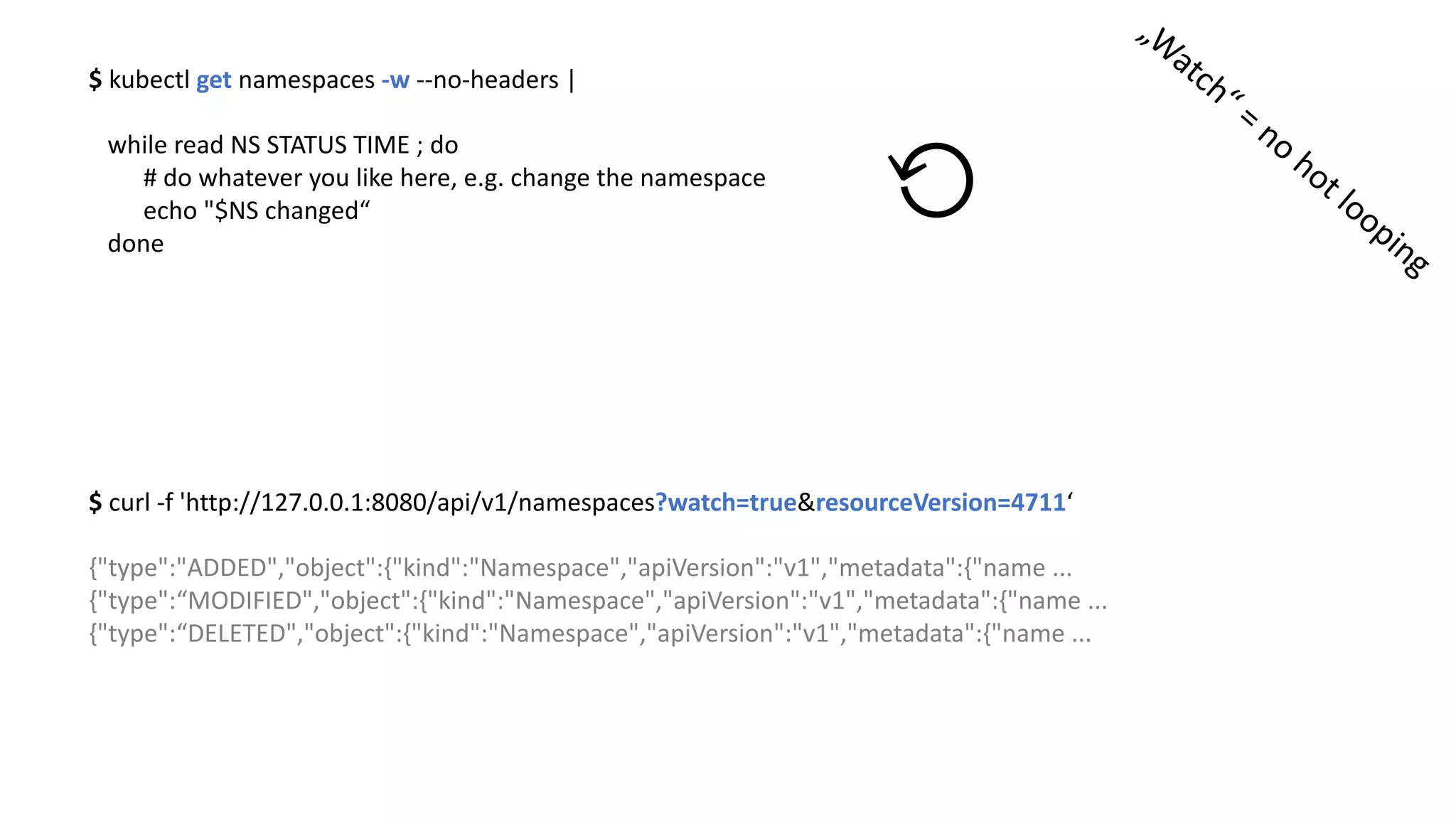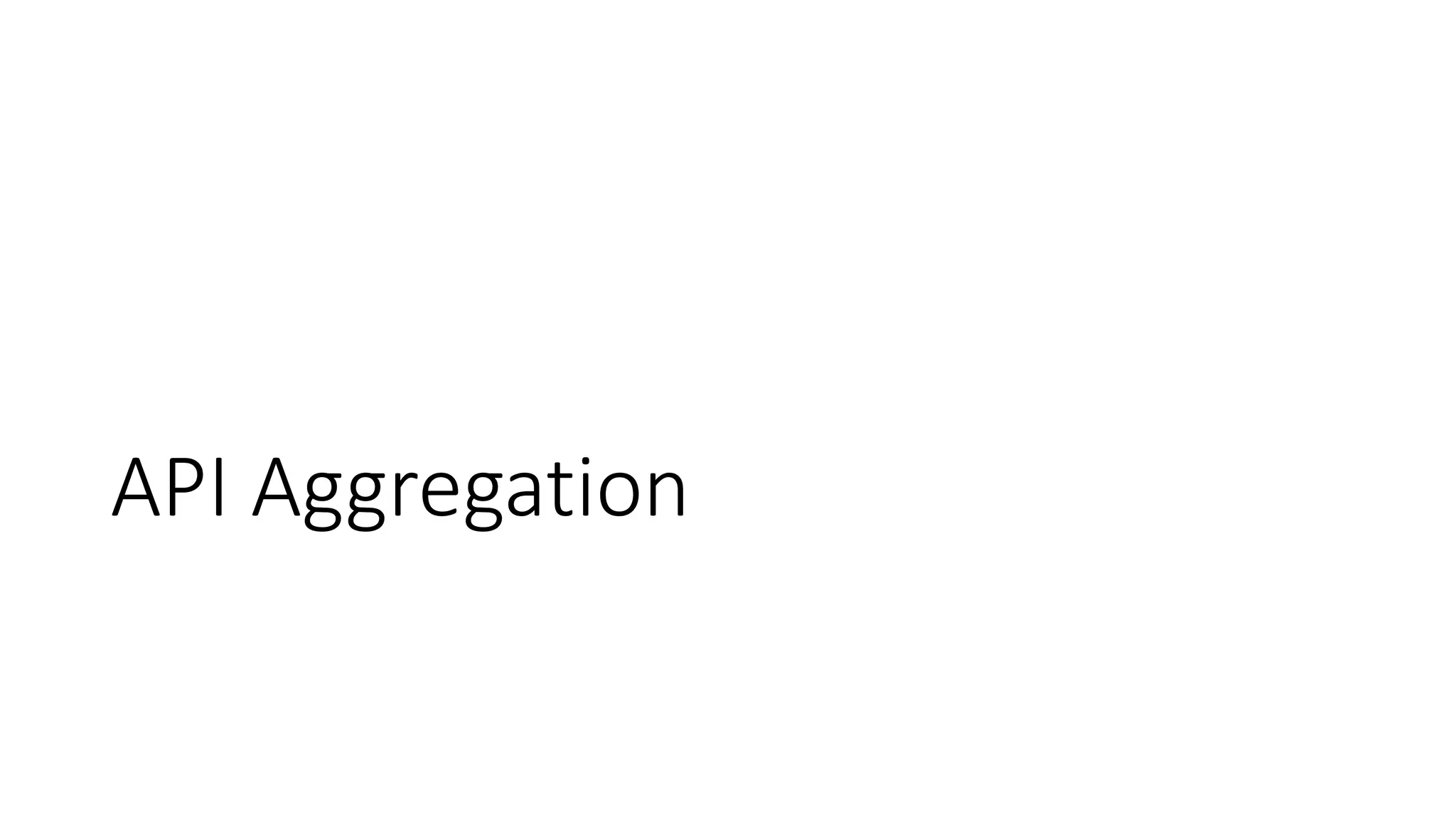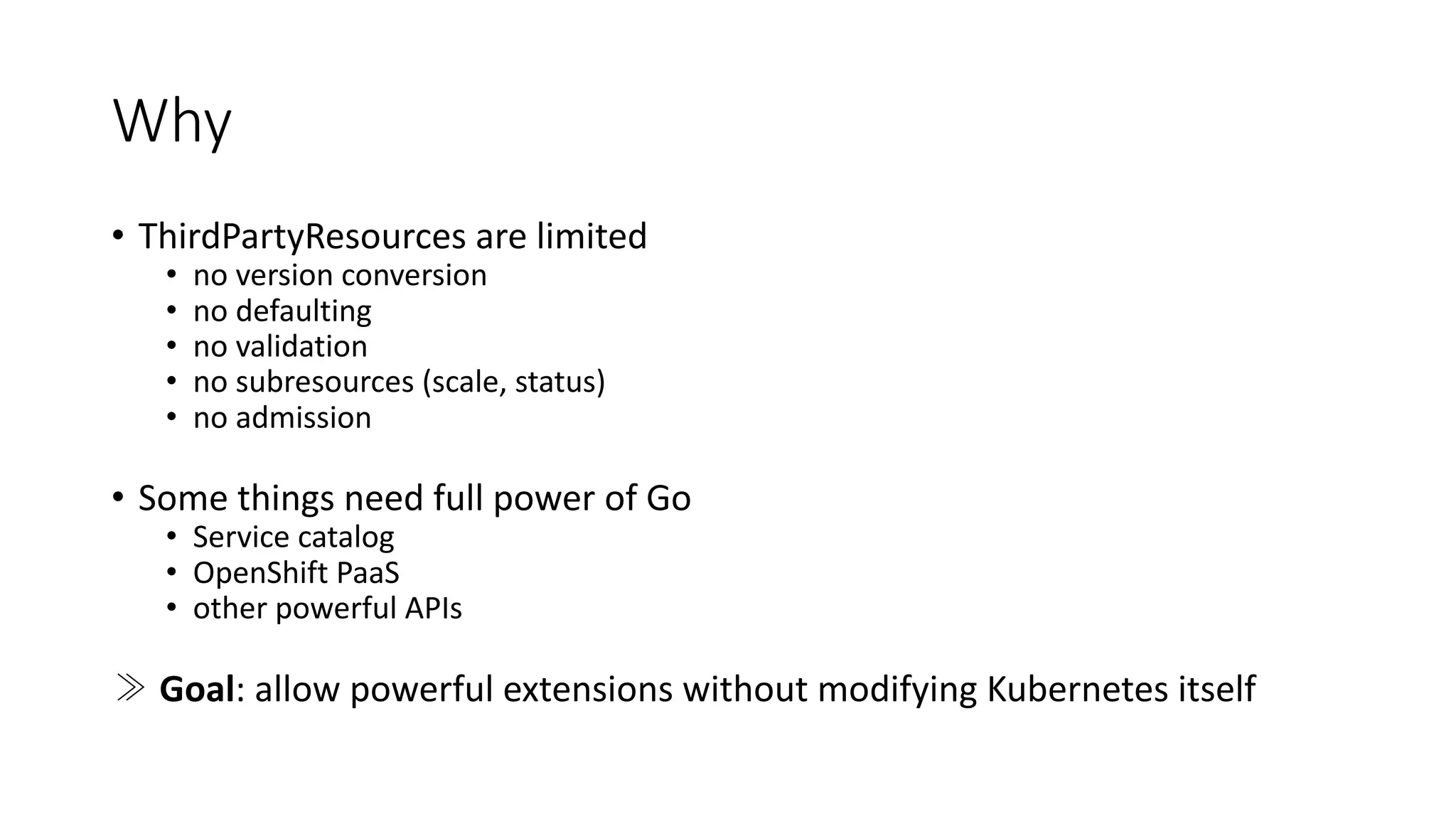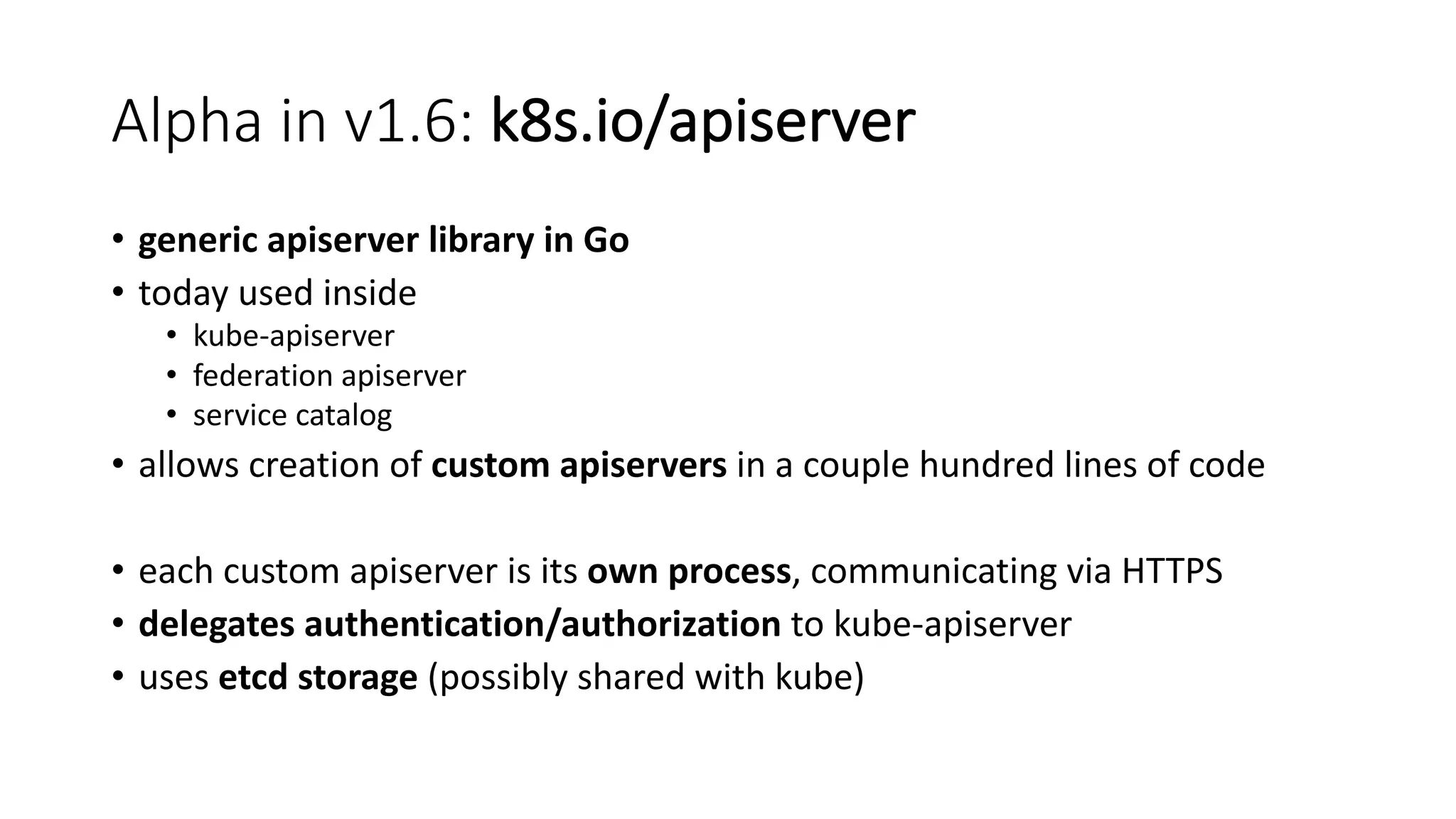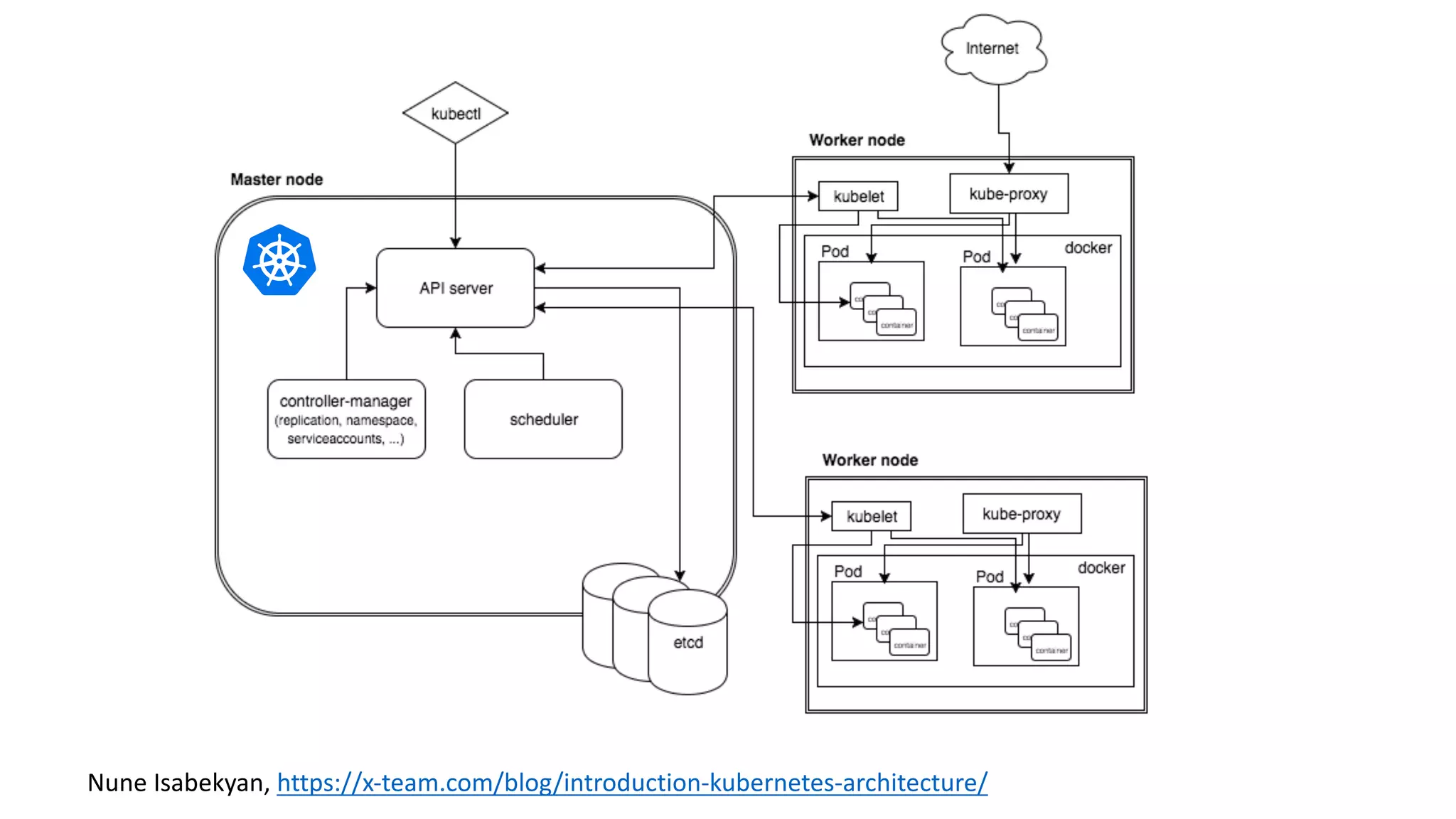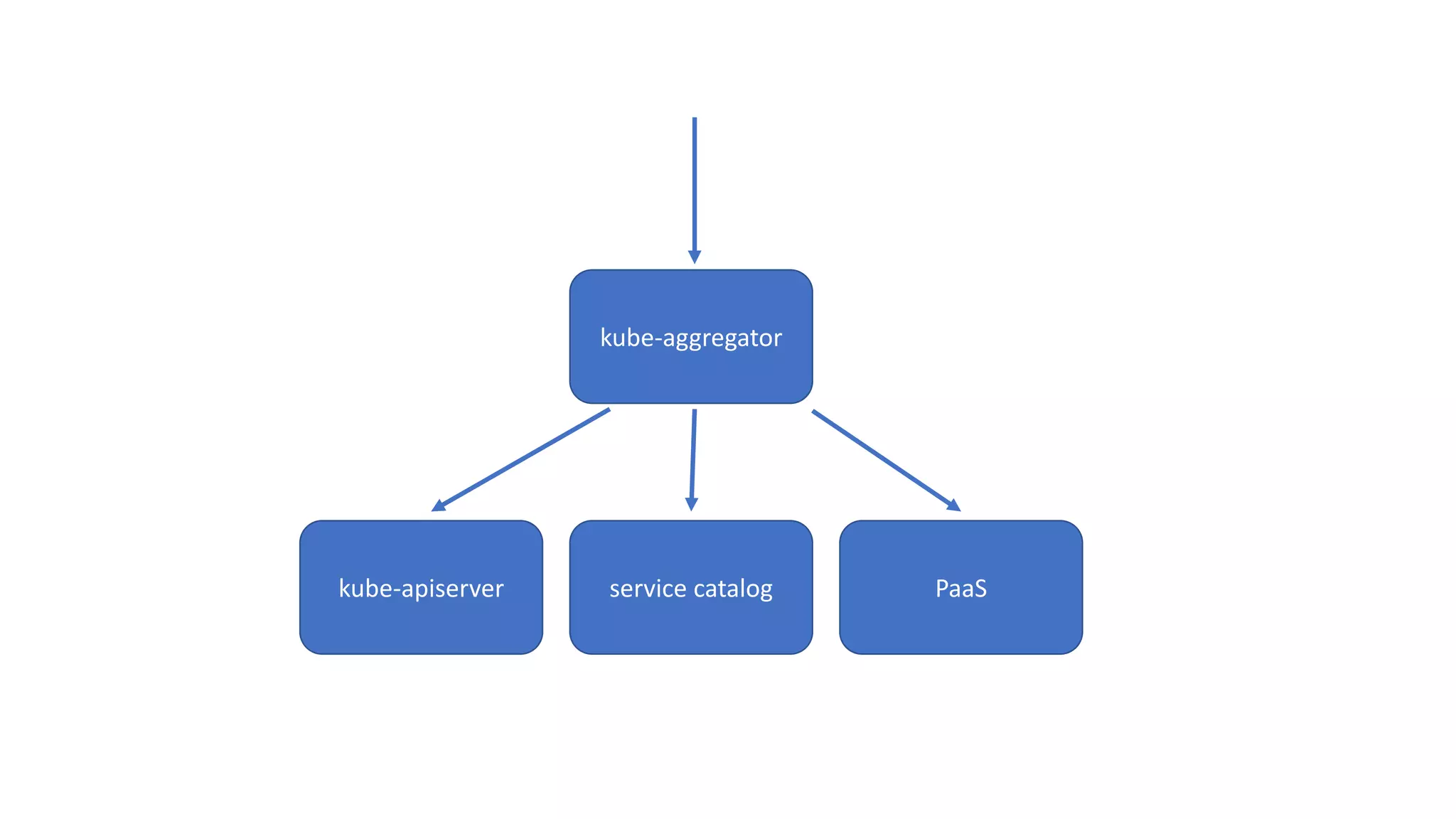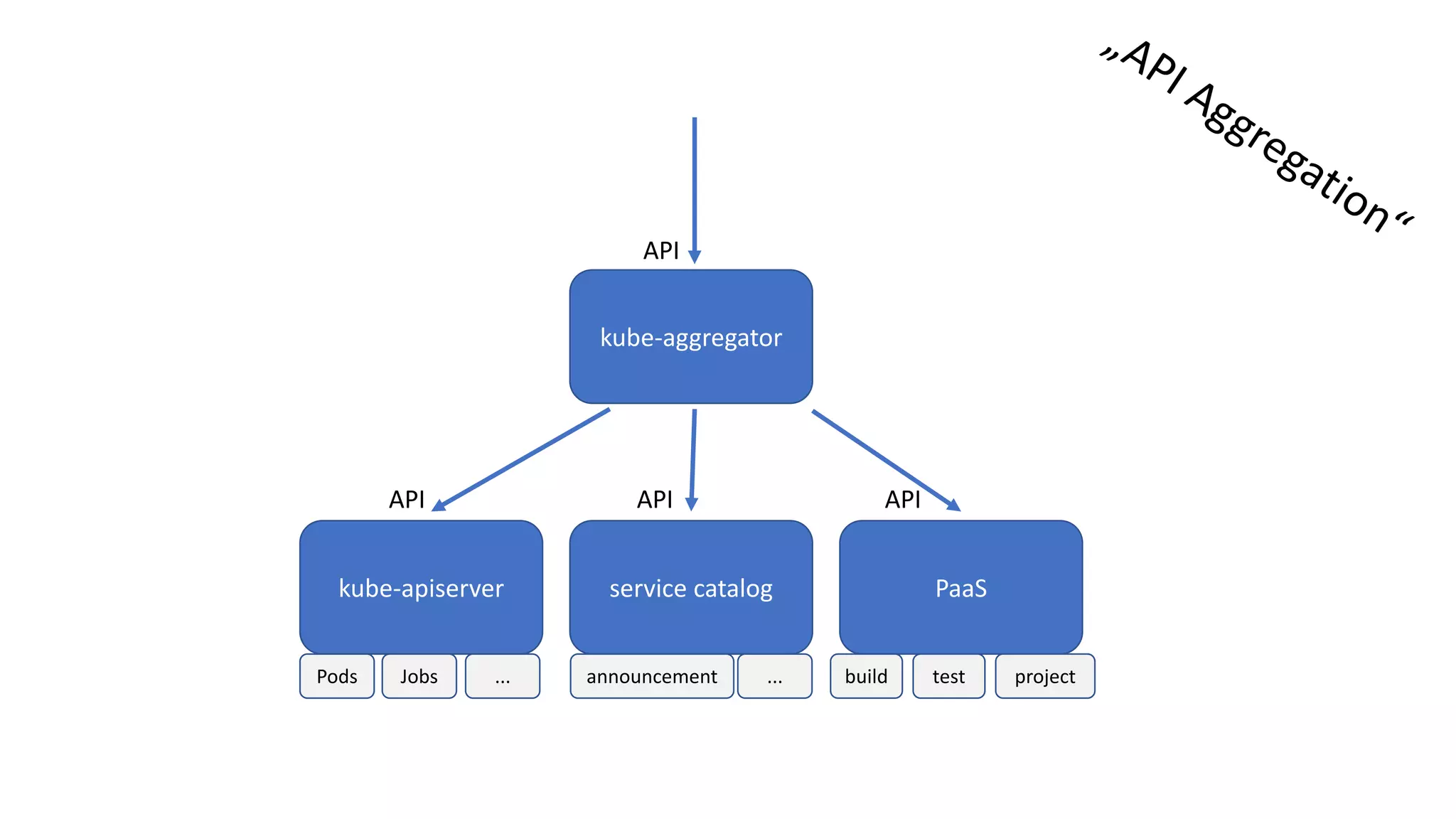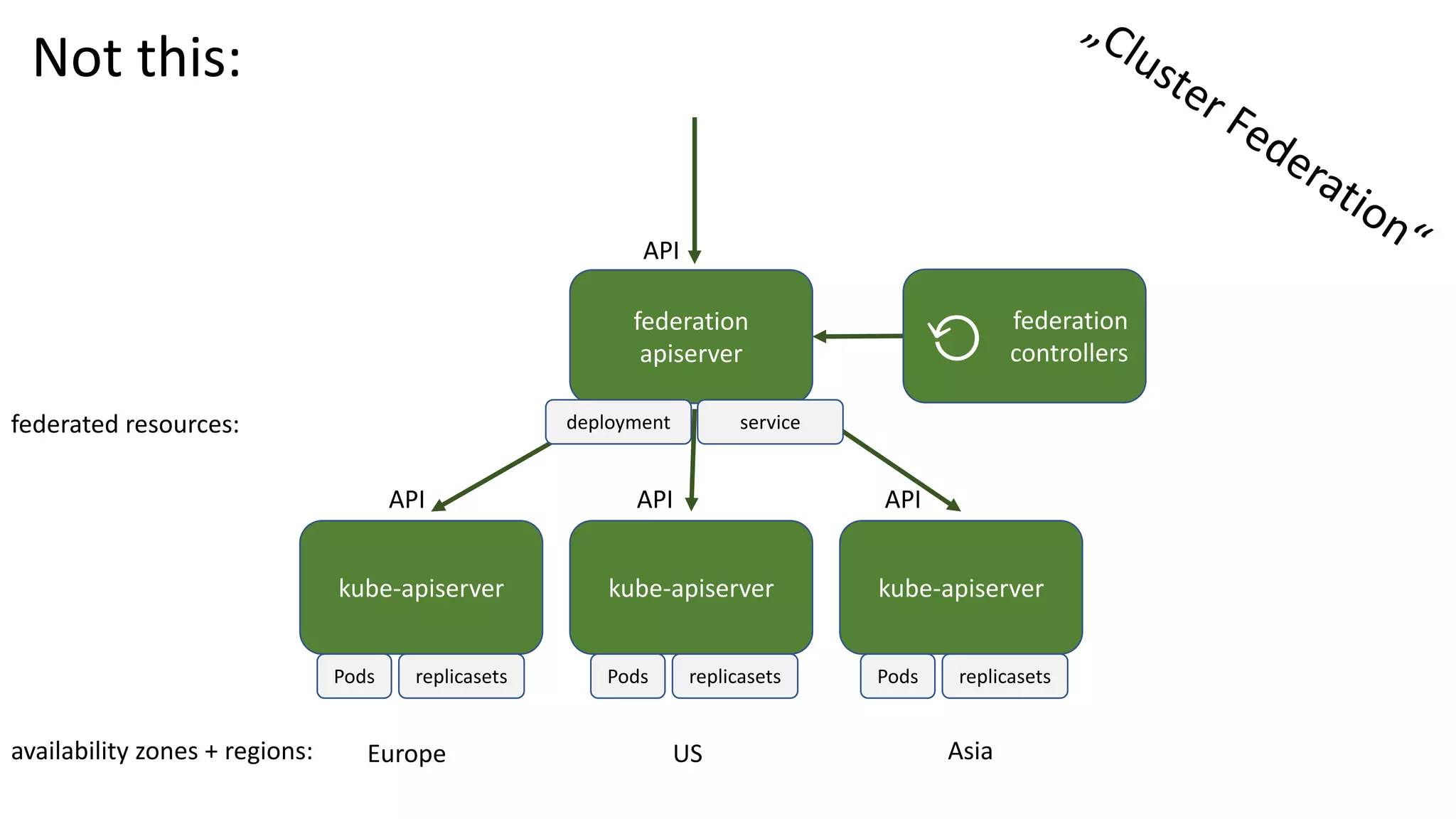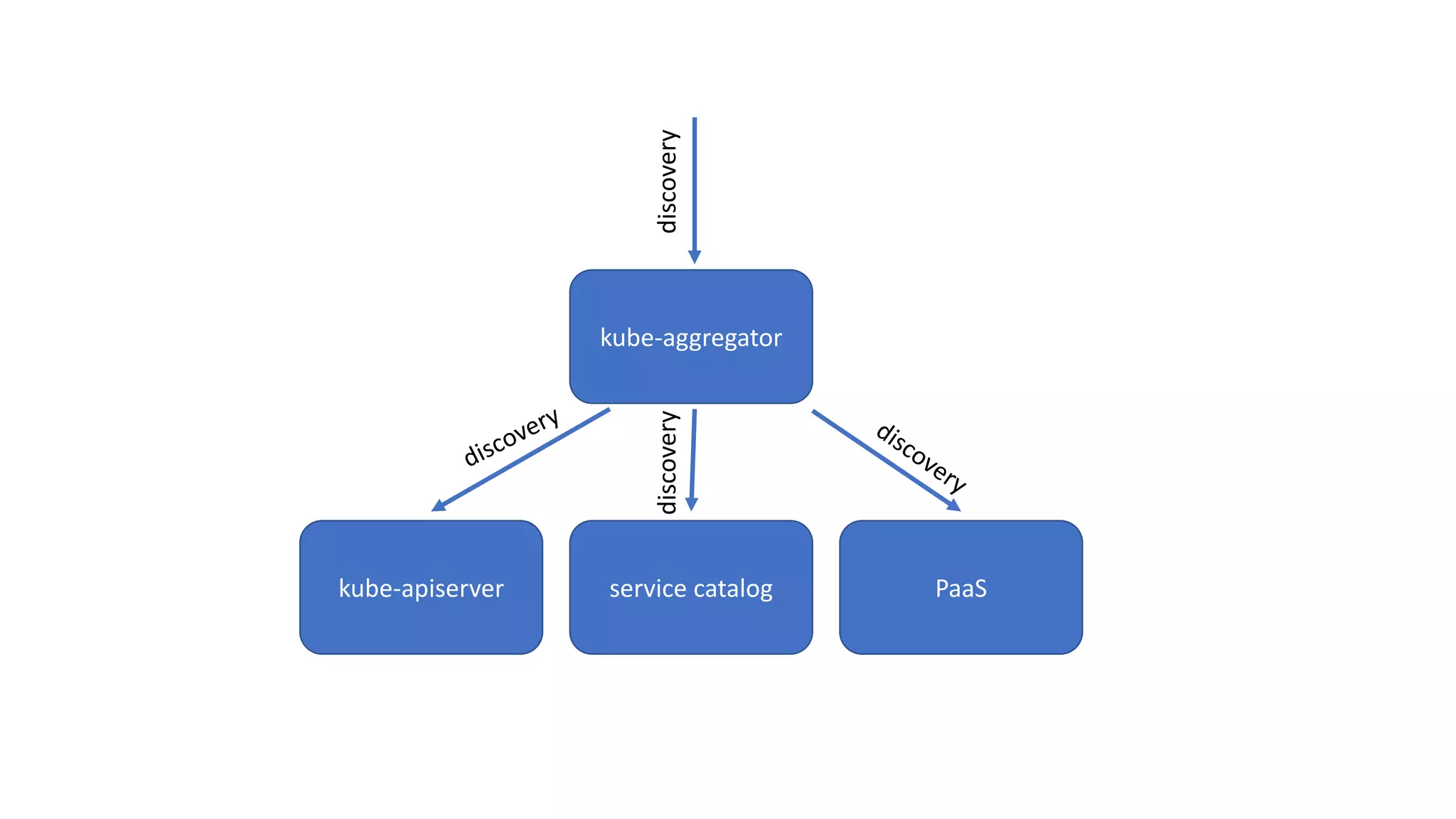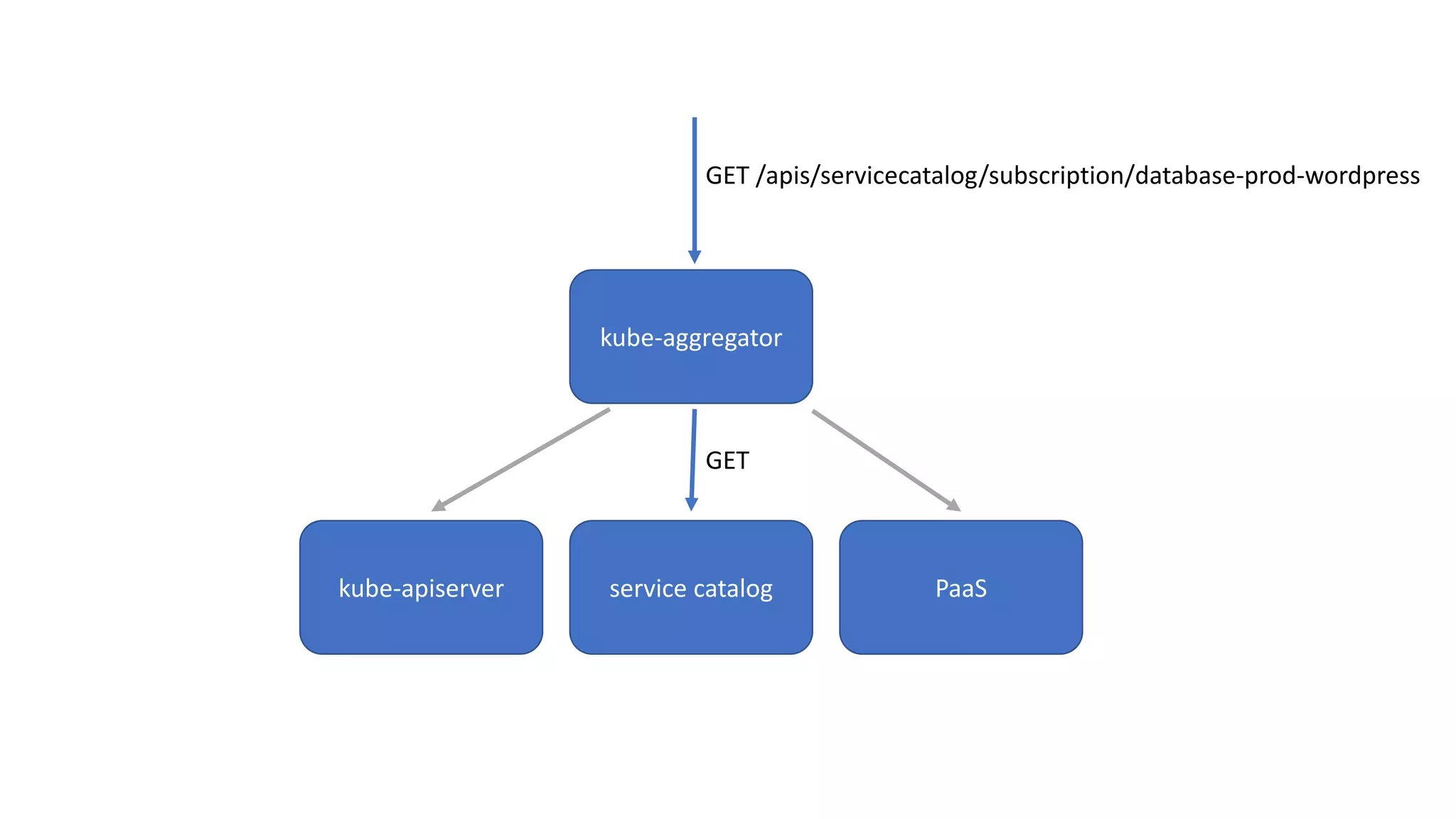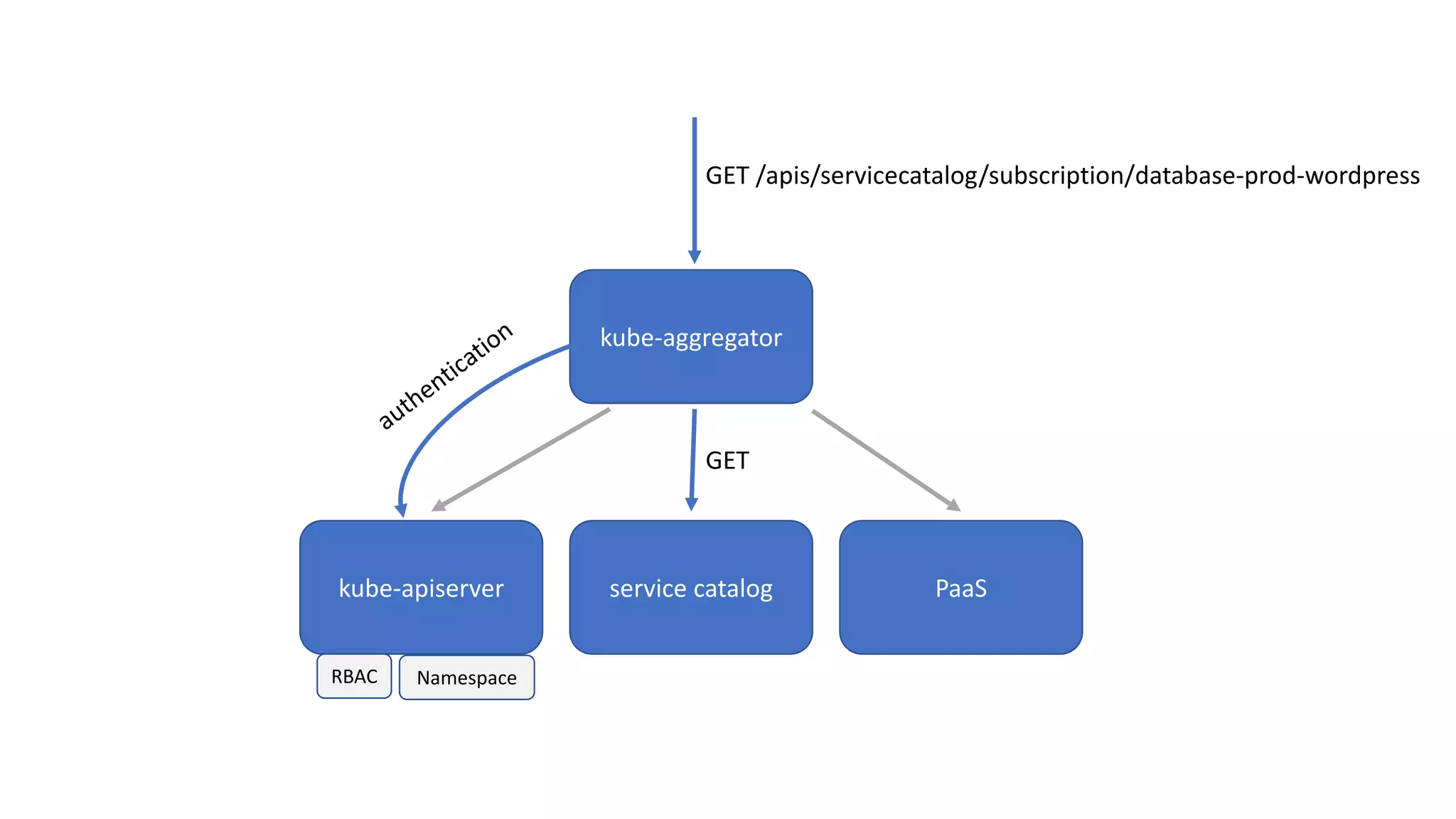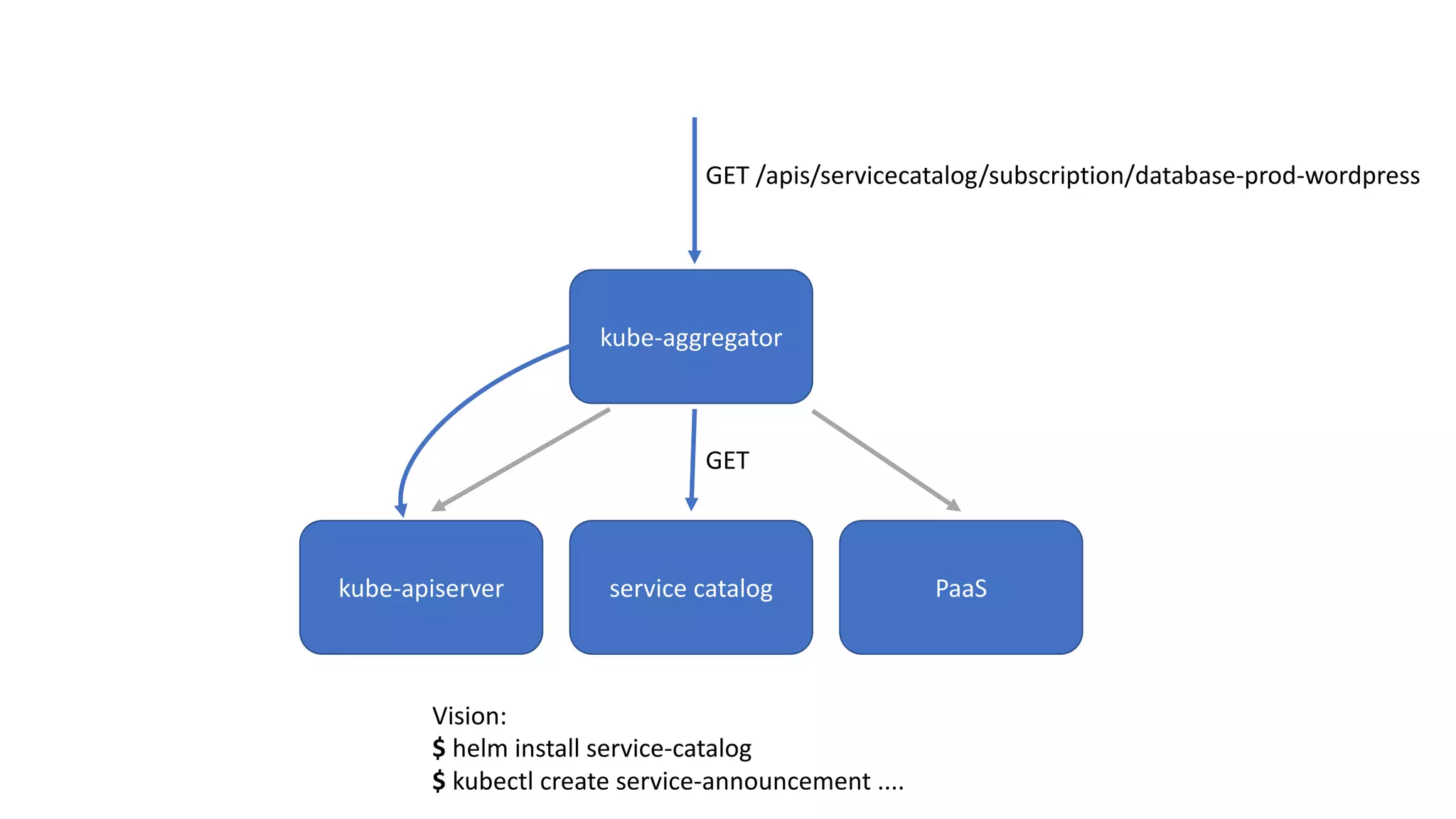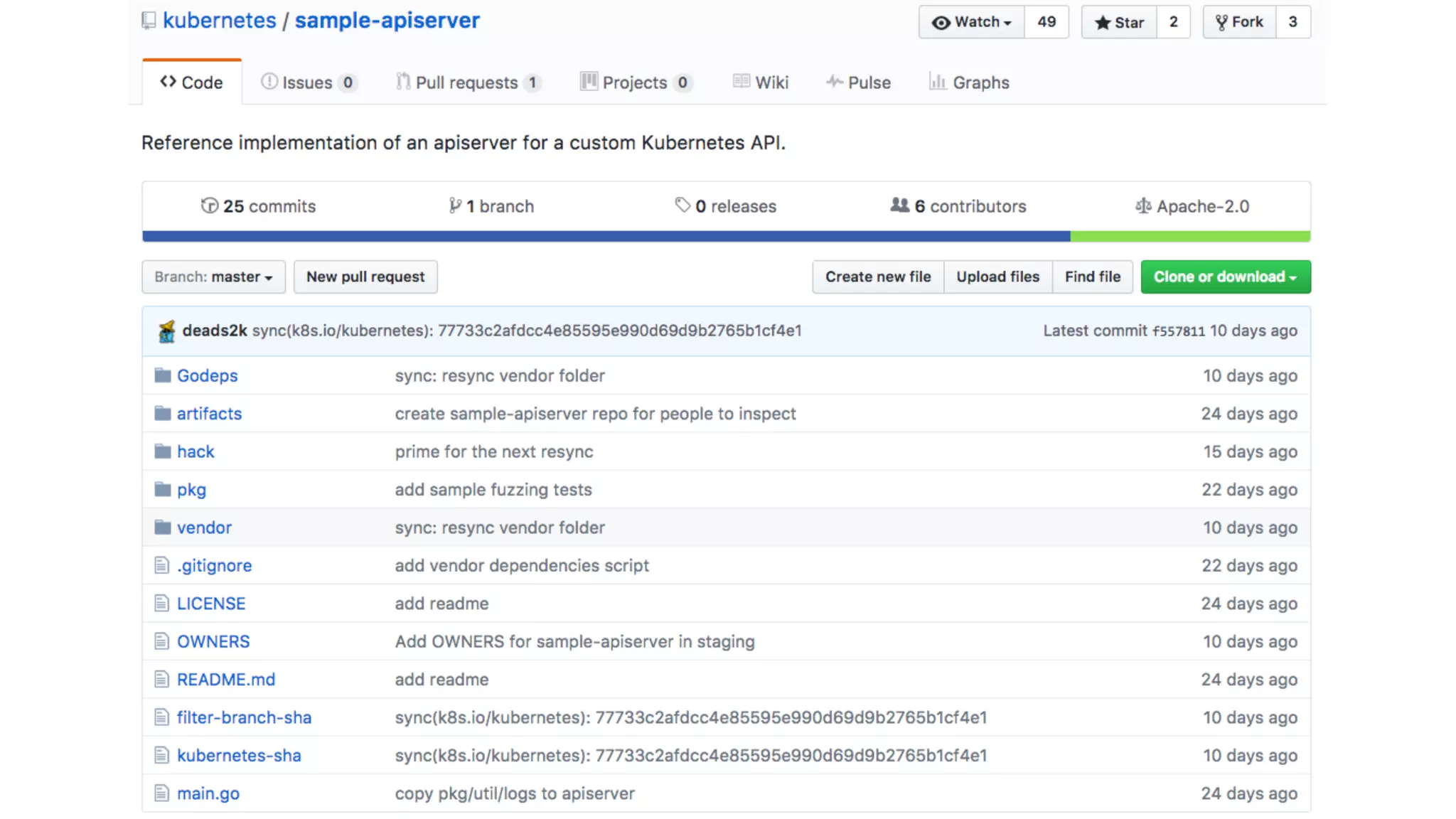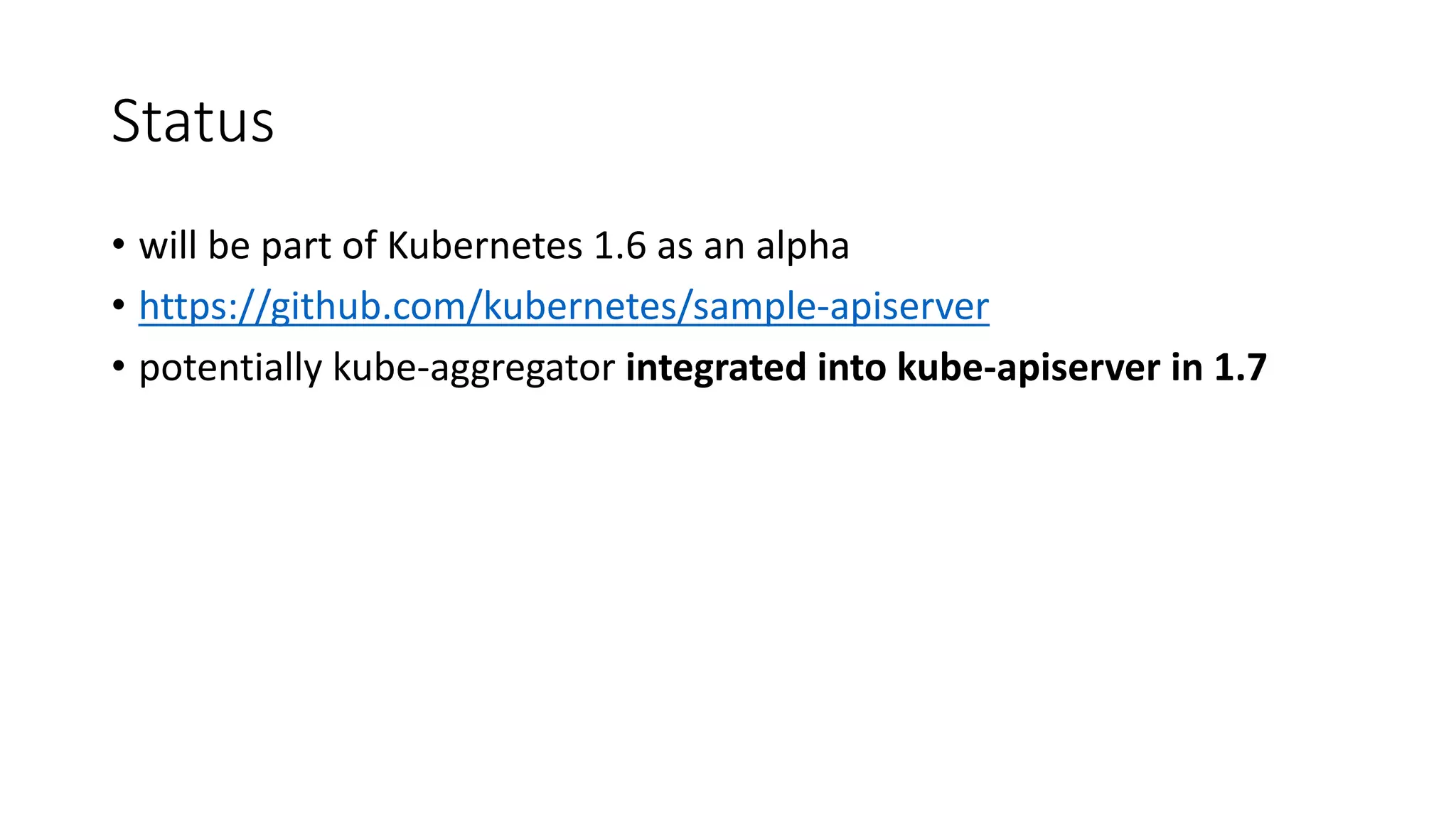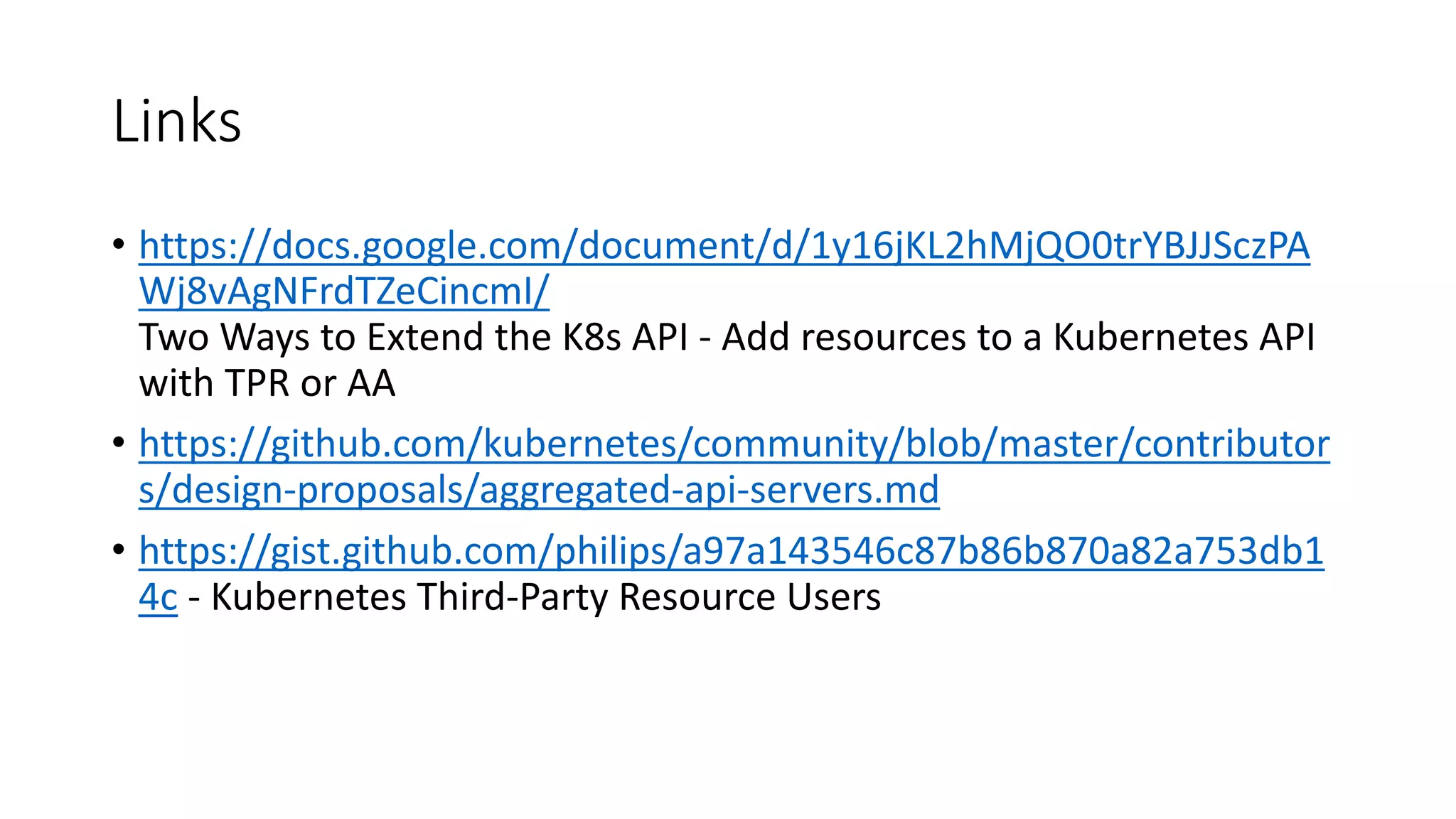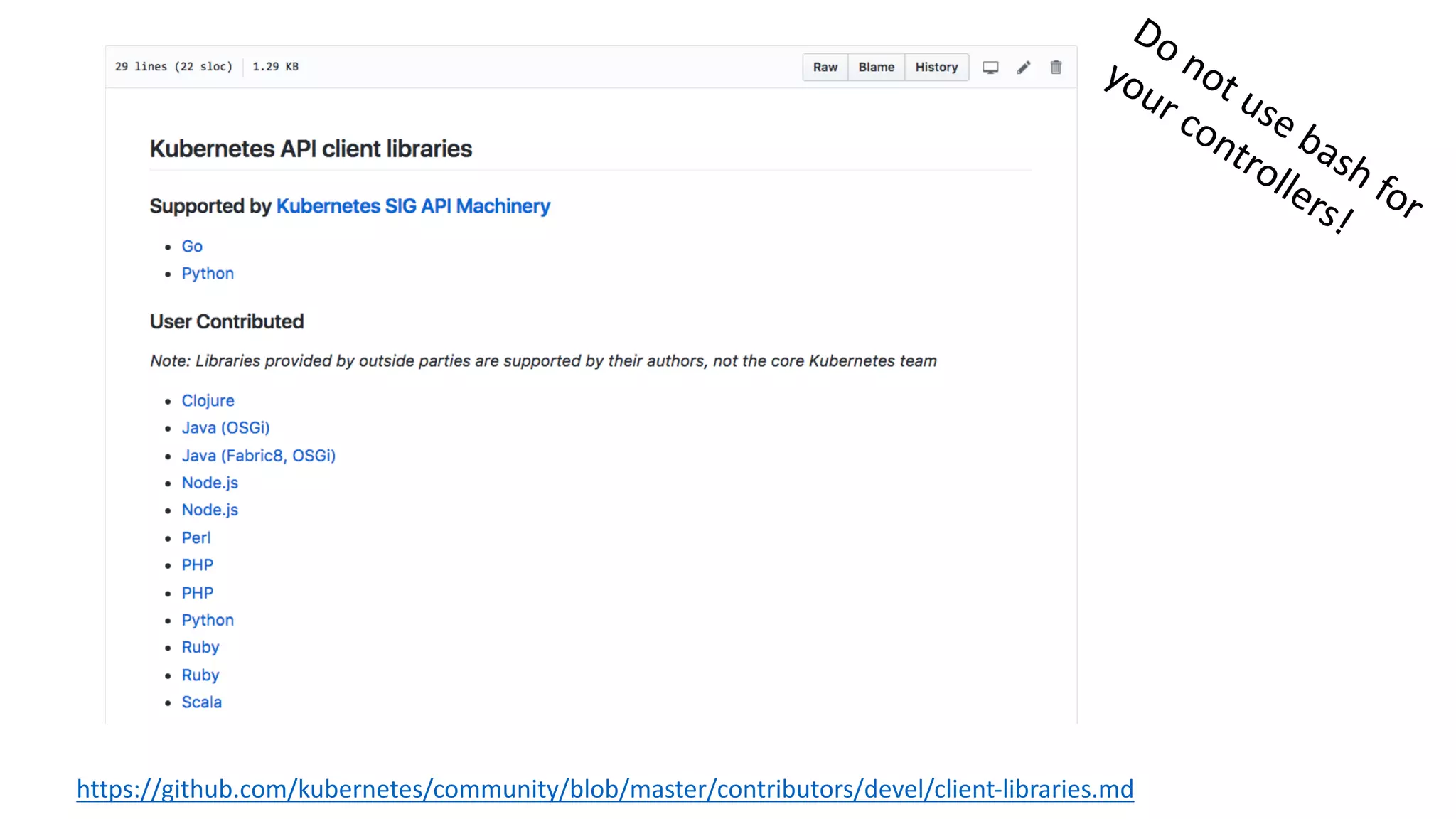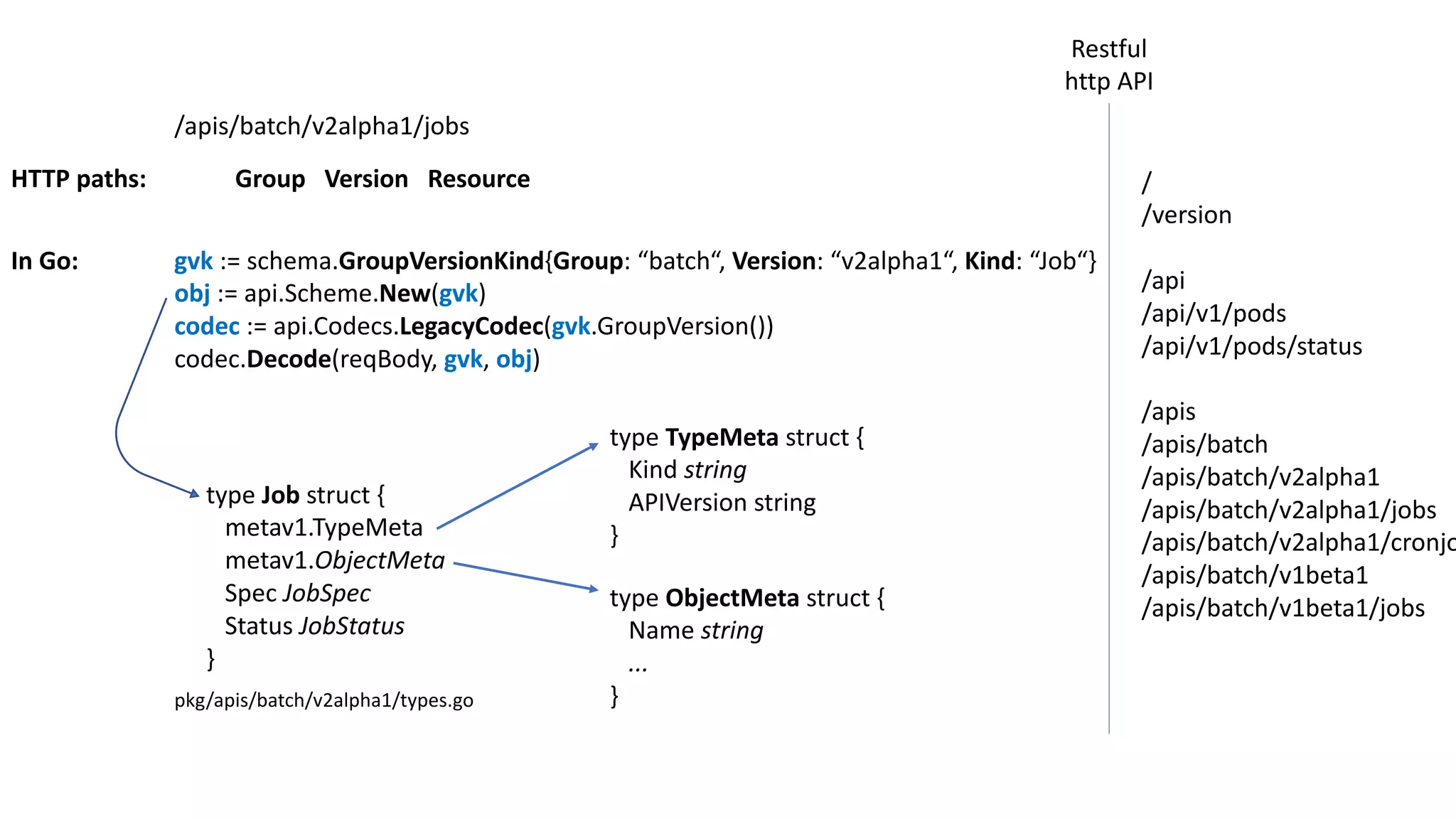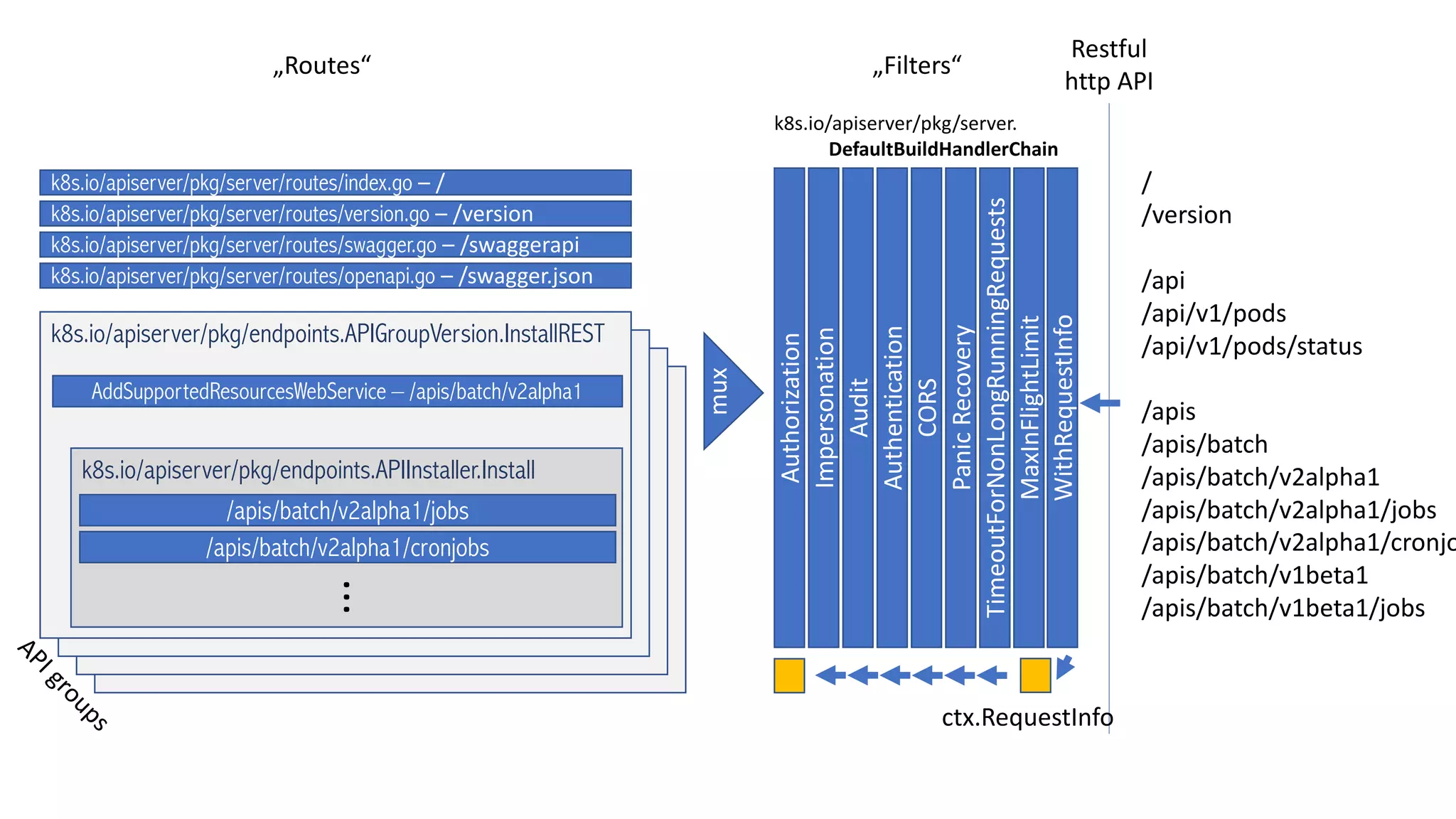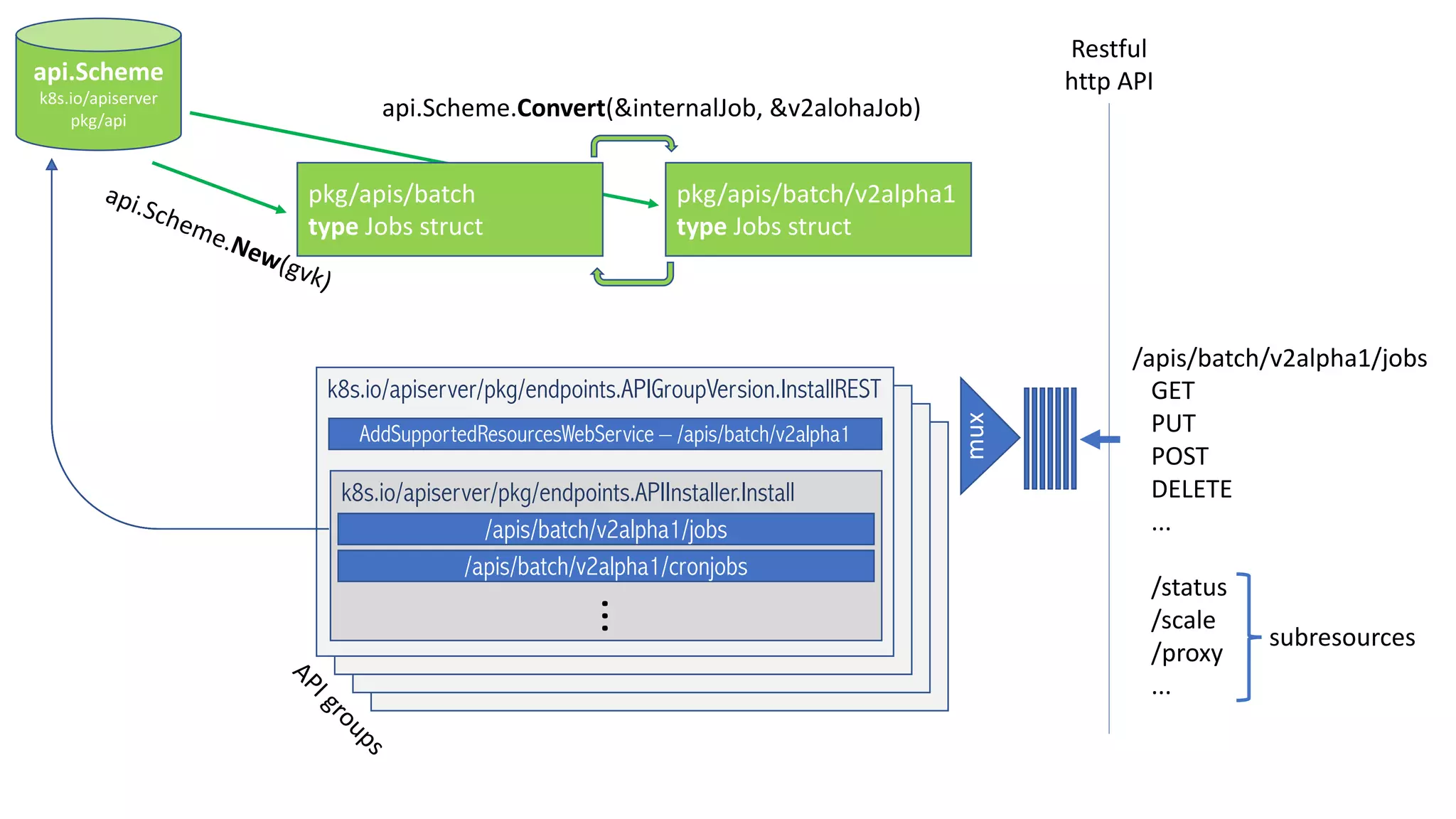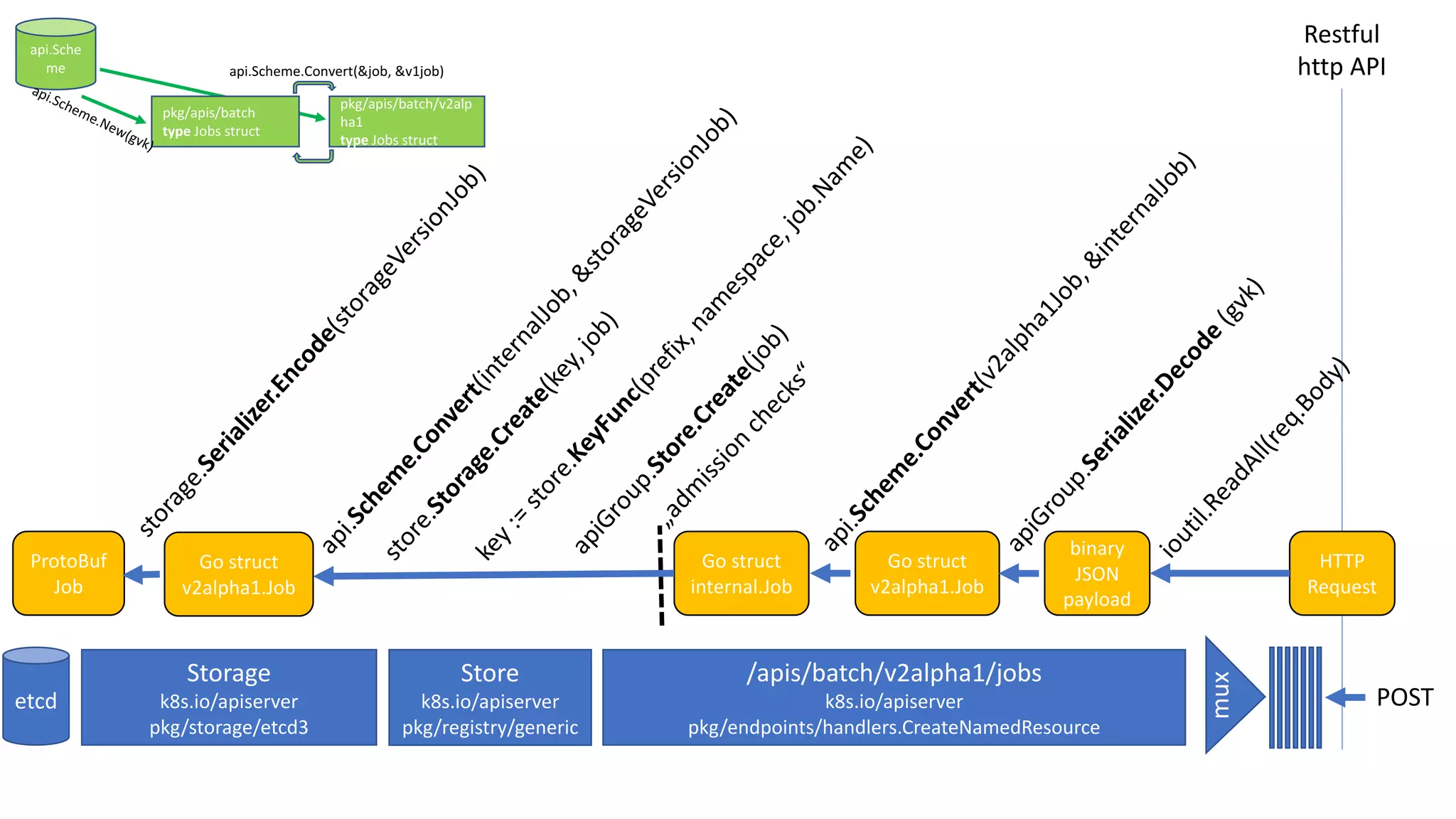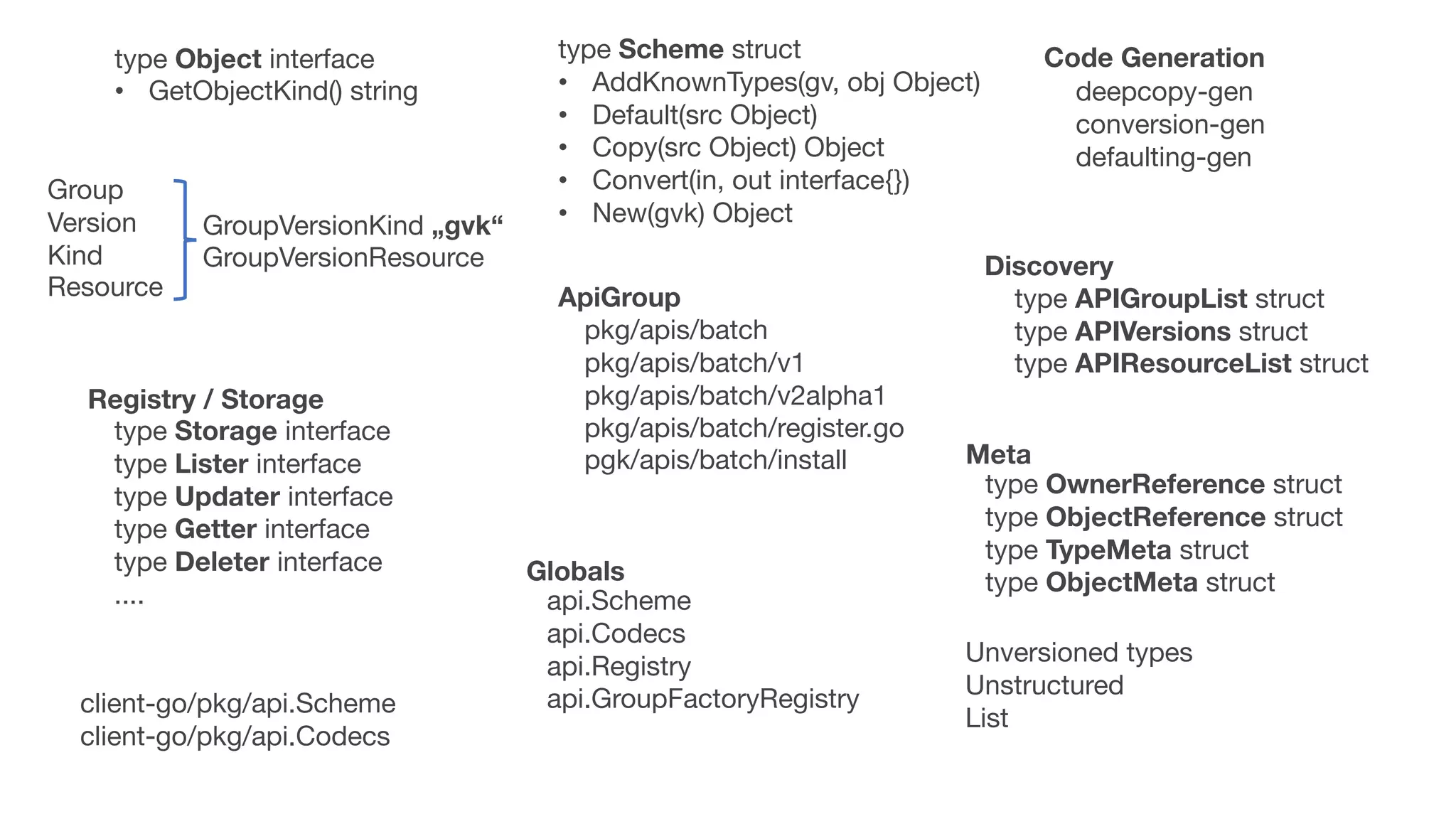The document discusses extending Kubernetes with a focus on its API, Kubernetes controllers, and third-party resources. It outlines how to work with namespaces, jobs, and manage resources using RESTful HTTP APIs while highlighting the limitations of third-party resources. Additionally, it touches on API aggregation for powerful extensions and the potential for custom APIs without modifying the Kubernetes core.
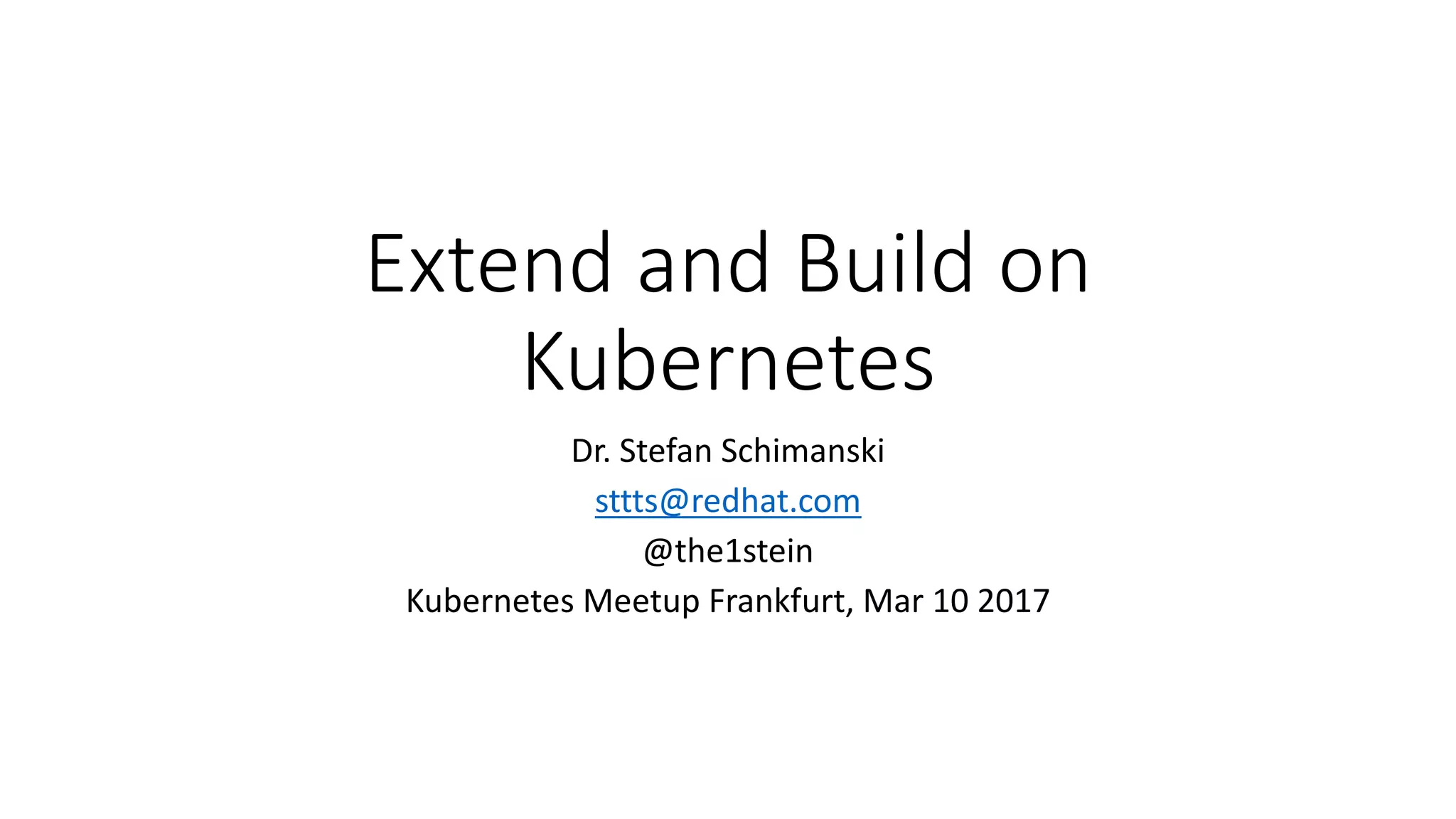
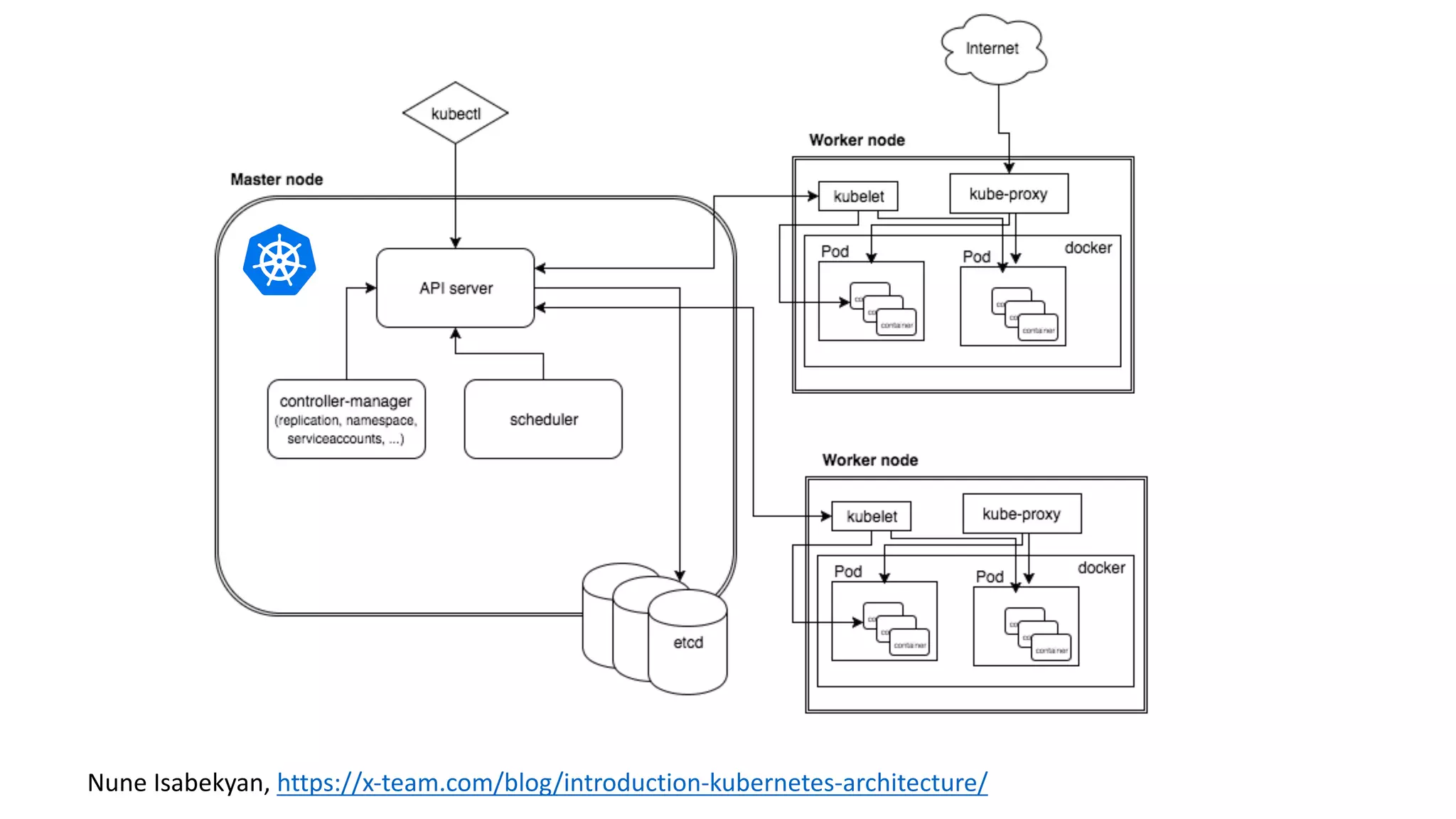
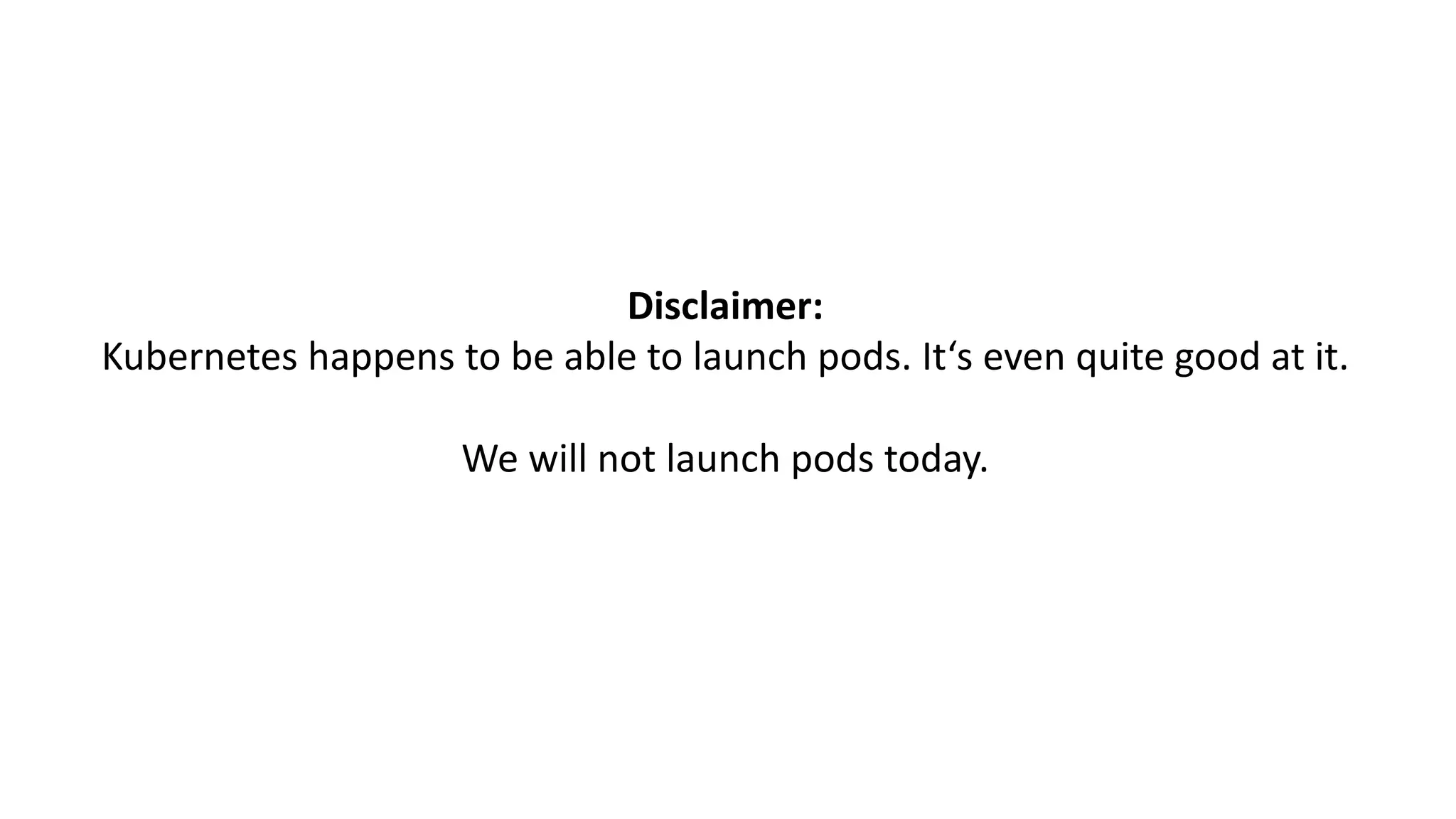

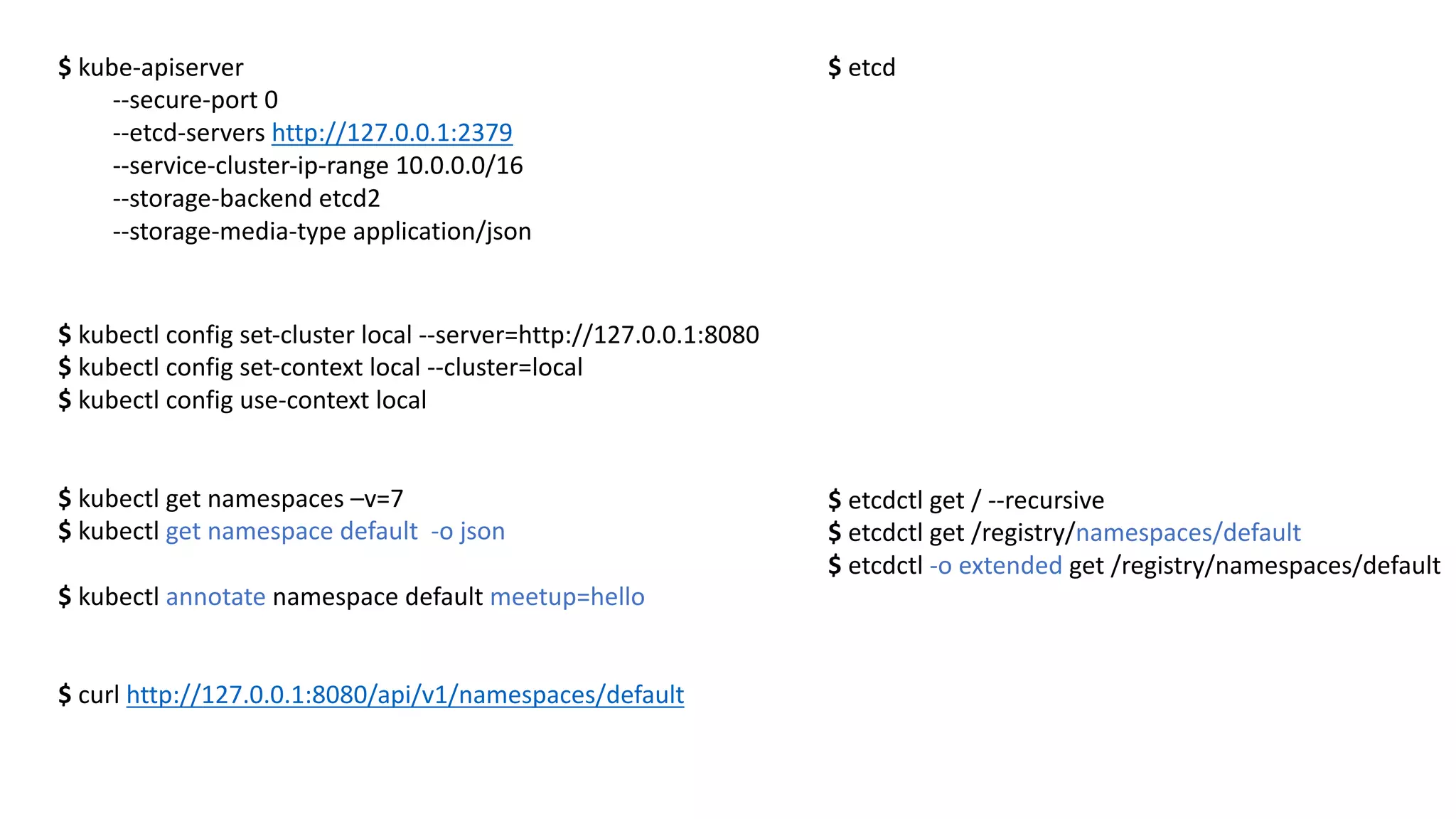
![$ http GET http://127.0.0.1:8080/api/v1/namespaces/default
{
"apiVersion": "v1",
"kind": "Namespace",
"metadata": {
"annotations": {
"meetup": “hallo"
},
"creationTimestamp": "2017-03-10T07:51:39Z",
"name": "default",
"resourceVersion": “73",
},
"spec": { "finalizers": ["kubernetes“] },
"status": { "phase": "Active“ }
}
$ http GET http://127.0.0.1:8080/api/v1/namespaces/default |
jq ".metadata.annotations["meetup"] = "$(date)"" |
http PUT http://127.0.0.1:8080/api/v1/namespaces/default
HTTP/1.1 200 OK
Content-Length: 341
Content-Type: application/json
Date: Fri, 10 Mar 2017 08:28:01 GMT](https://image.slidesharecdn.com/meetup-extendandbuildonkubernetes-170311003200/75/Extend-and-build-on-Kubernetes-6-2048.jpg)
![$ while true; do
http GET http://127.0.0.1:8080/api/v1/namespaces/default |
jq ".metadata.annotations["meetup"] = "$(date)"" |
http --check-status PUT http://127.0.0.1:8080/api/v1/namespaces/default || break
done
HTTP/1.1 409 Conflict
Content-Length: 310
Content-Type: application/json
Date: Fri, 10 Mar 2017 08:27:58 GMT
{
"apiVersion": "v1",
"code": 409,
"details": {
"kind": "namespaces",
"name": "default“
},
"kind": "Status",
"message": "Operation cannot be fulfilled on namespaces "default": the object has been
modified; please apply your changes to the latest version and try again",
"metadata": {},
"reason": "Conflict",
"status": "Failure“](https://image.slidesharecdn.com/meetup-extendandbuildonkubernetes-170311003200/75/Extend-and-build-on-Kubernetes-7-2048.jpg)
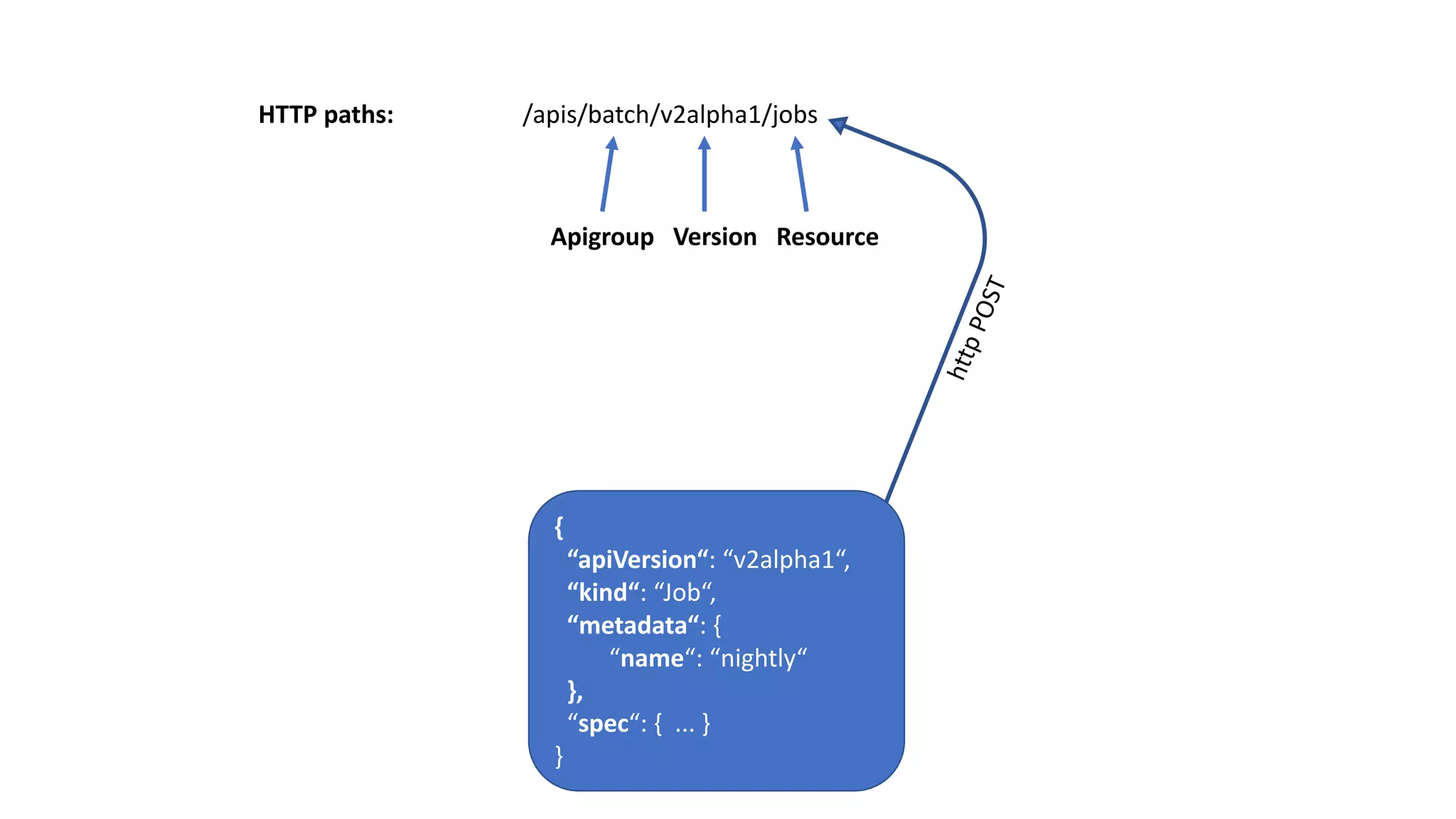
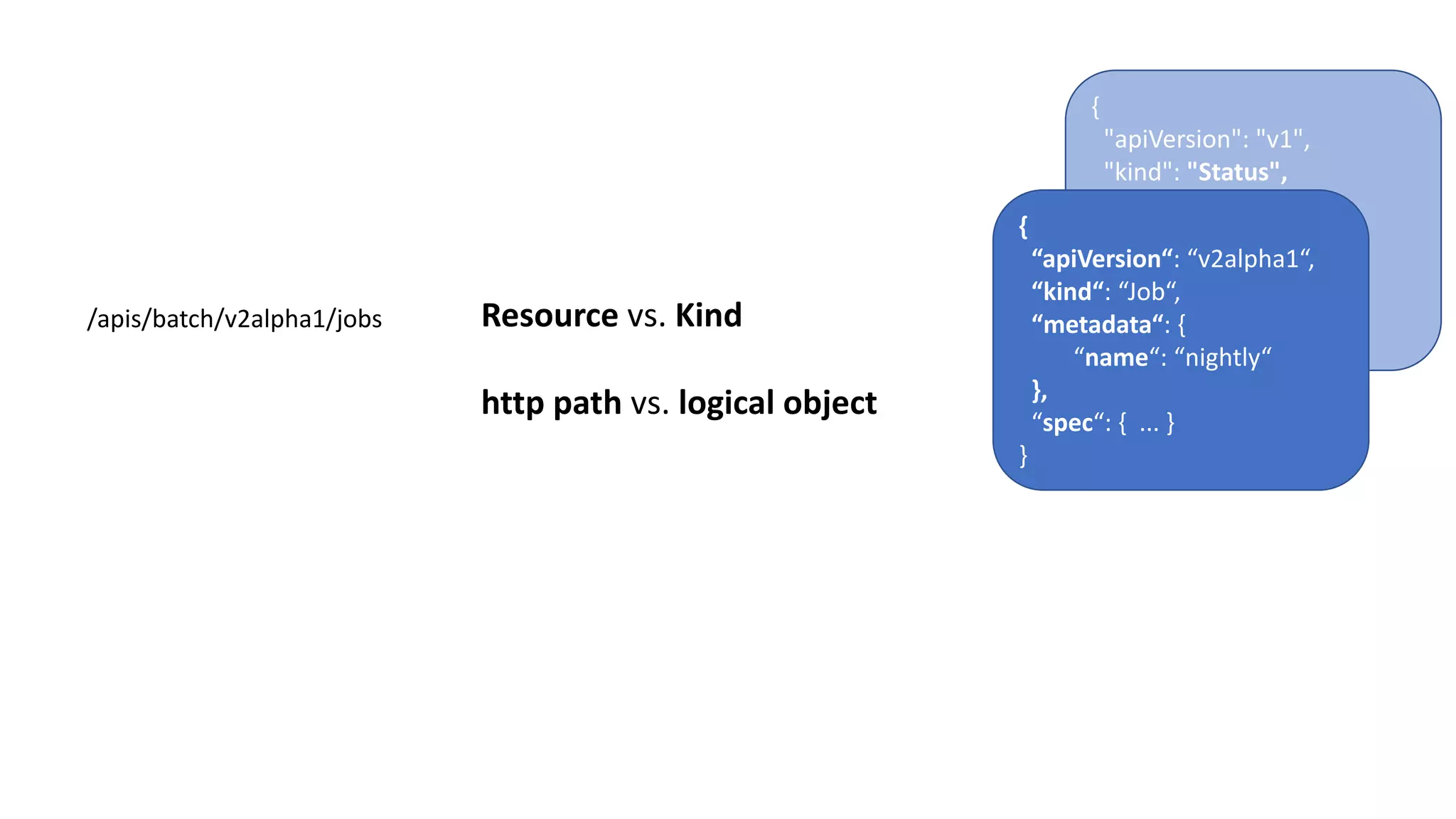
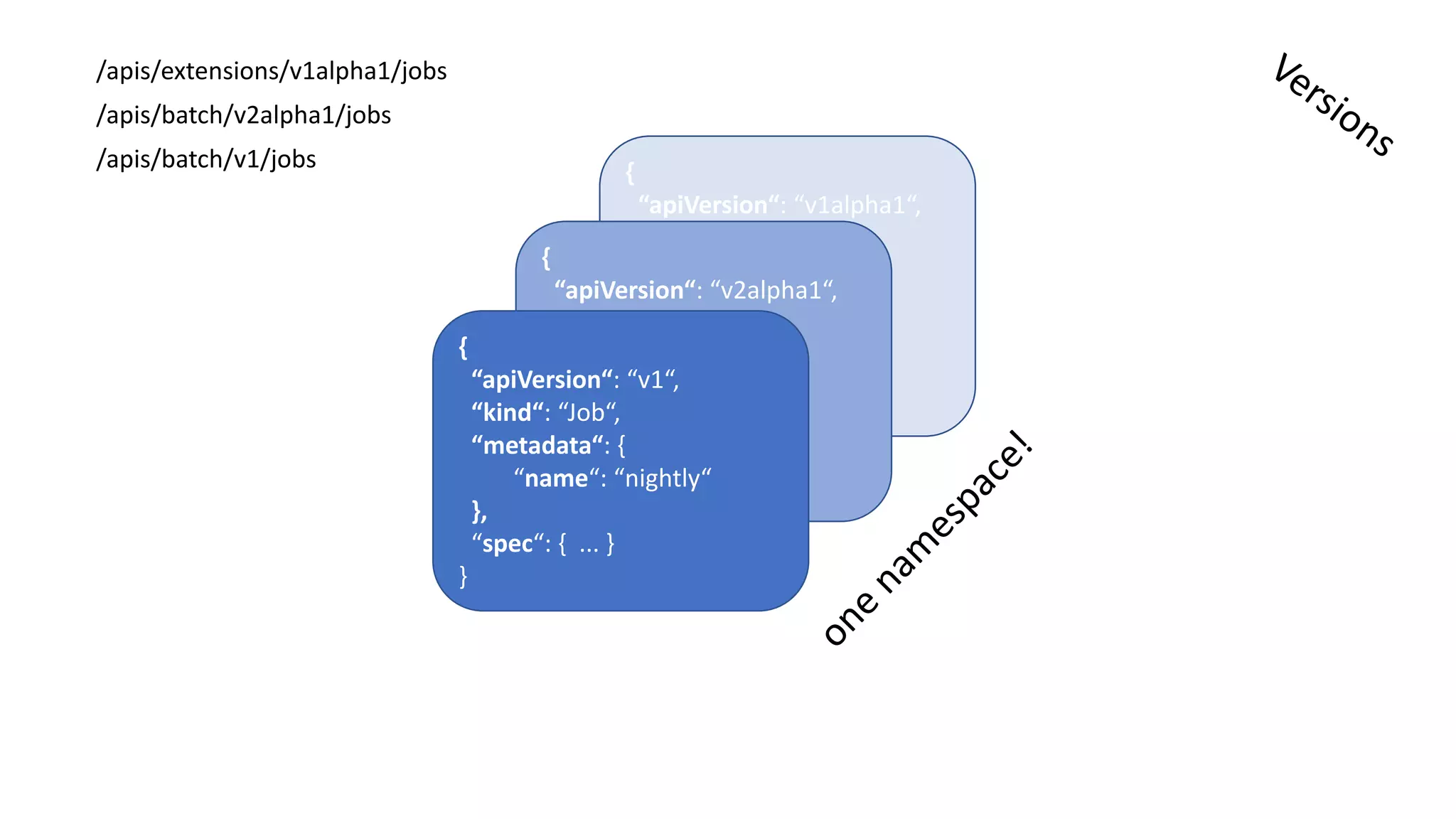
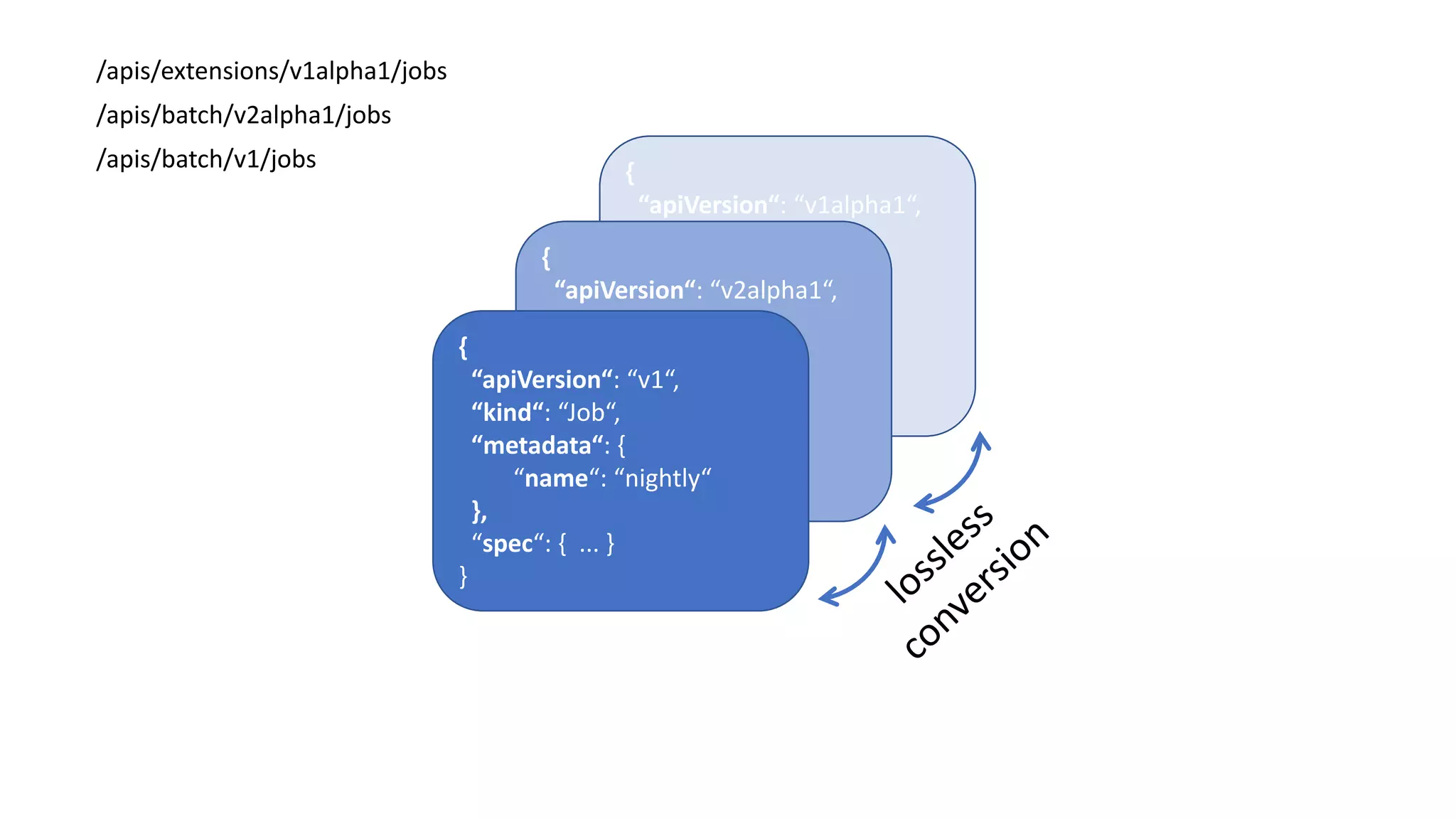
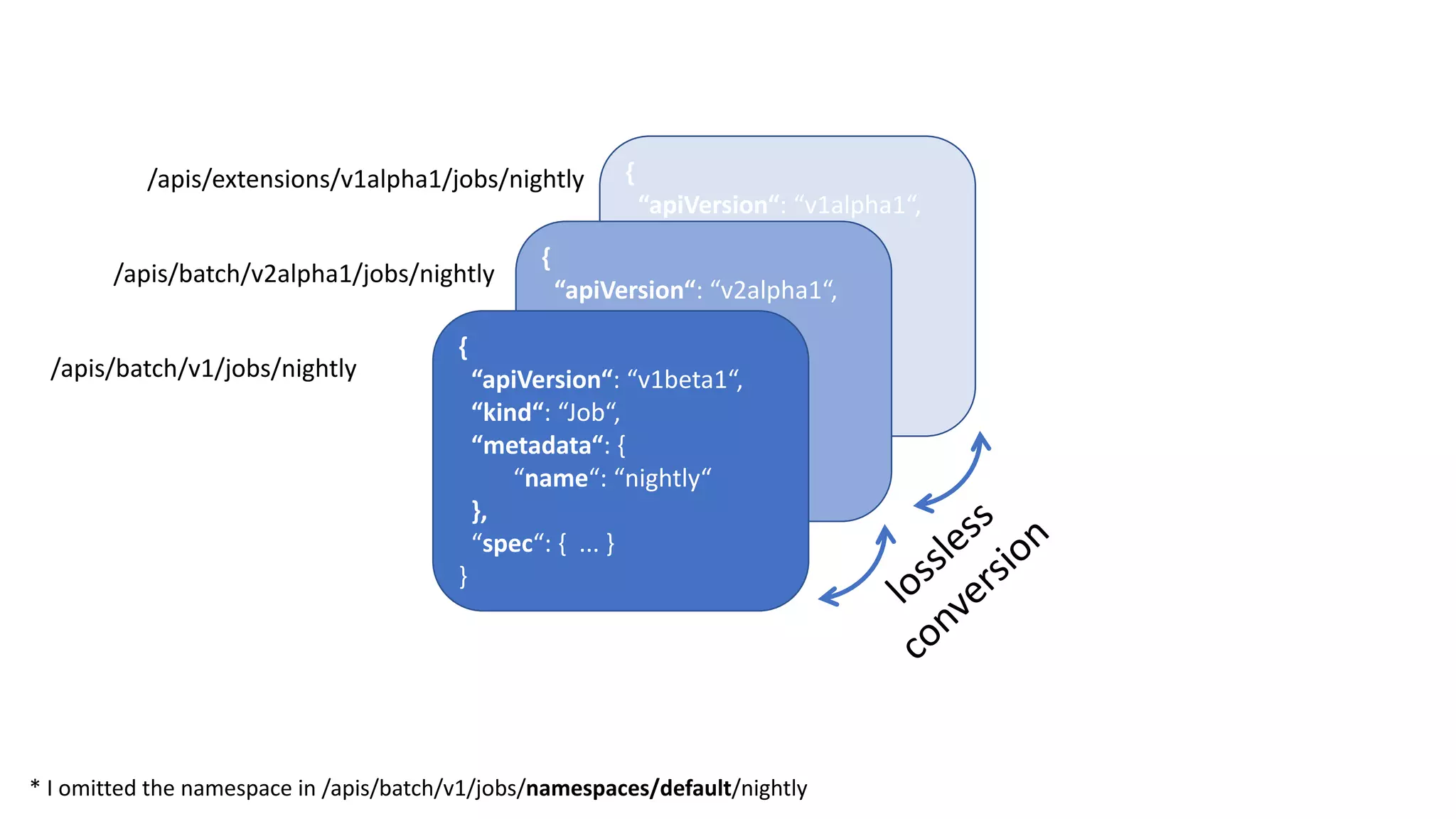
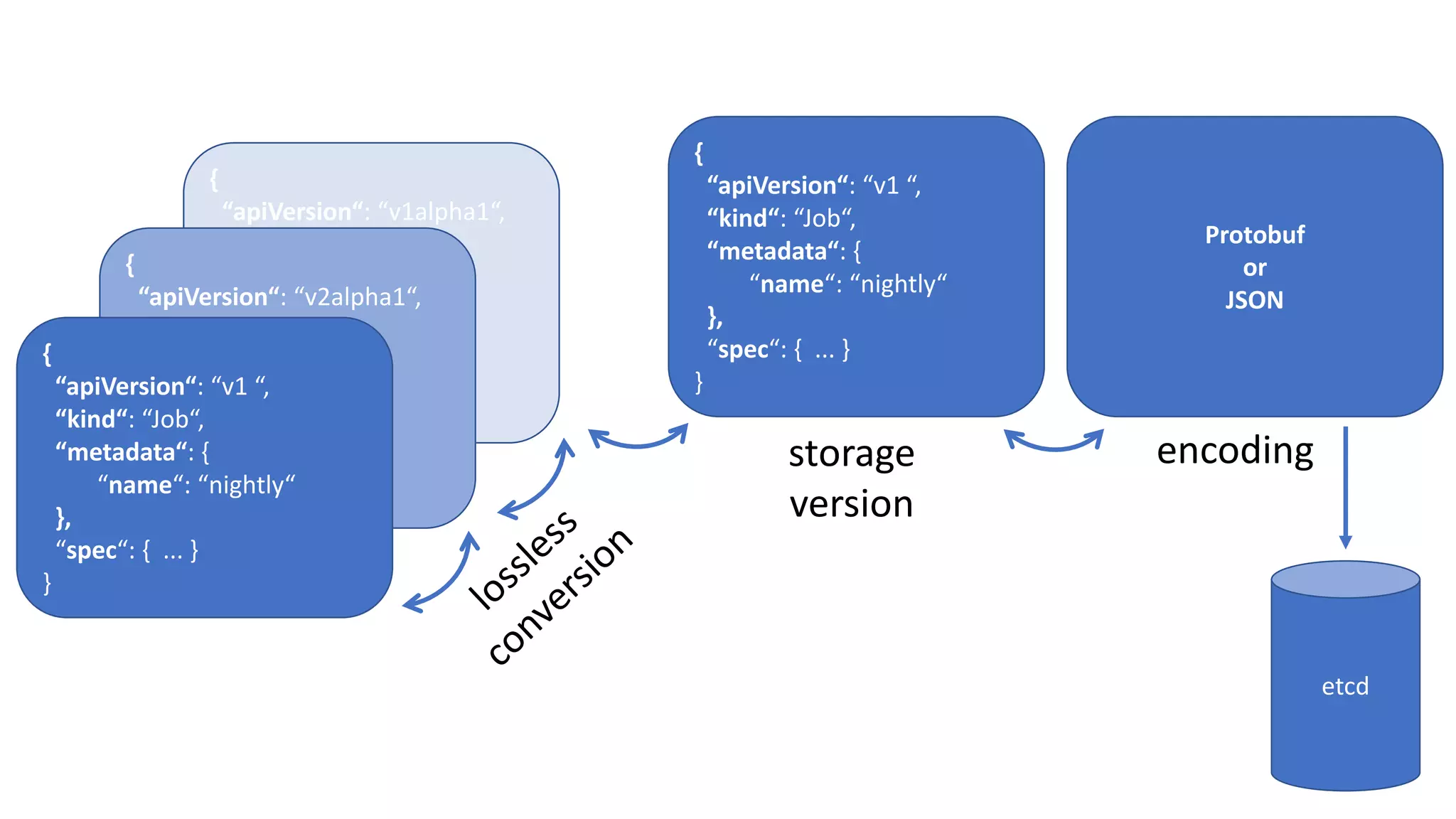
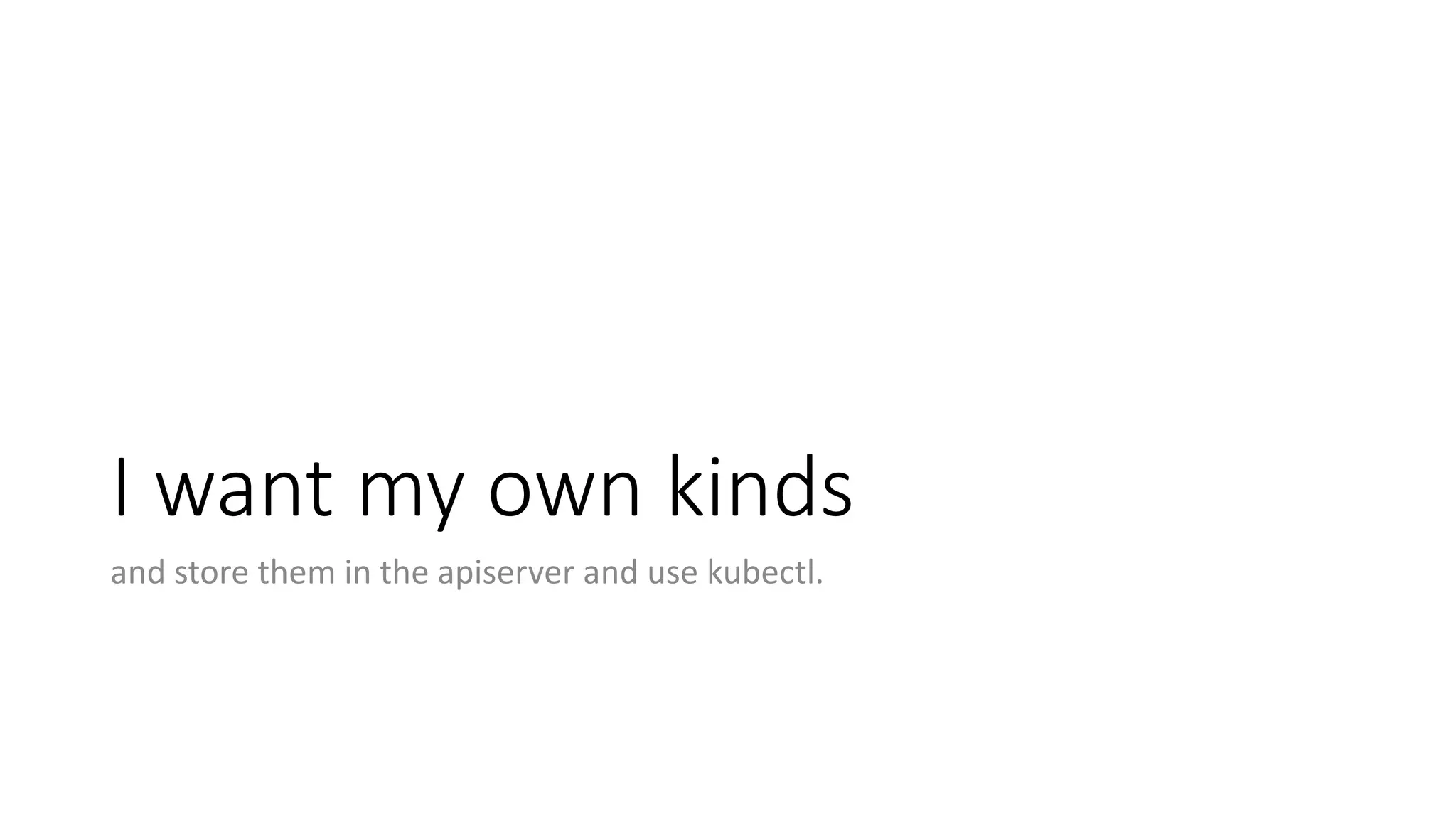
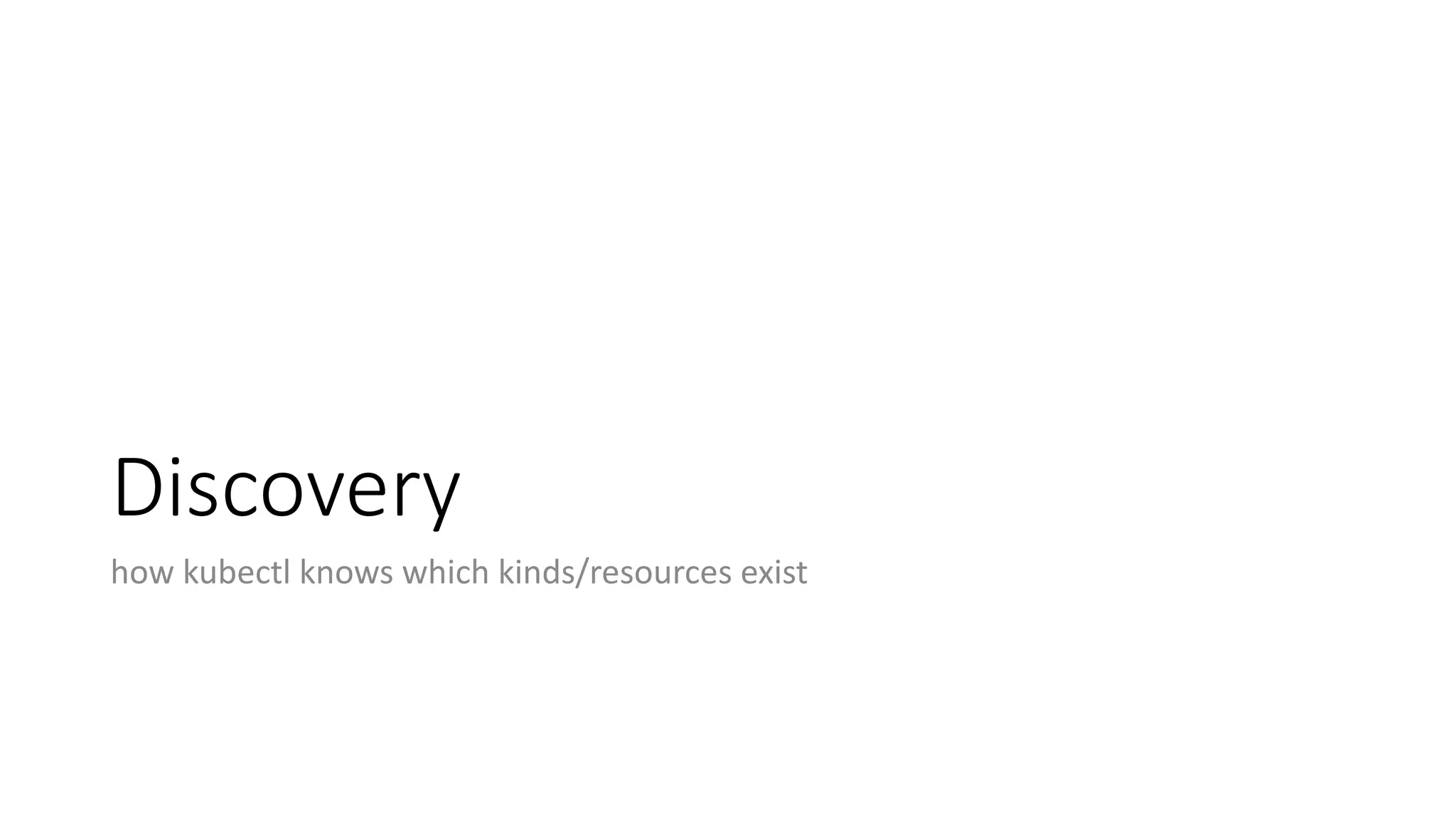
![$ http 127.0.0.1:8080/apis/
{
"groups": [{
"name": "batch",
"preferredVersion": {"groupVersion": "batch/v1", "version": "v1“},
"versions": [{"groupVersion": "batch/v1", "version": "v1"}]
}, ...]
}
$ http 127.0.0.1:8080/apis/batch/v1
{
"apiVersion": "v1",
"groupVersion": "batch/v1",
"kind": "APIResourceList",
"resources": [{
"kind": "Job",
"name": "jobs",
"namespaced": true,
"verbs": ["create", "delete", "deletecollection",
"get", "list", "patch", "update", "watch“
]
}, ...]
}
resource name ⇒ /apis/batch/v1/jobs](https://image.slidesharecdn.com/meetup-extendandbuildonkubernetes-170311003200/75/Extend-and-build-on-Kubernetes-16-2048.jpg)
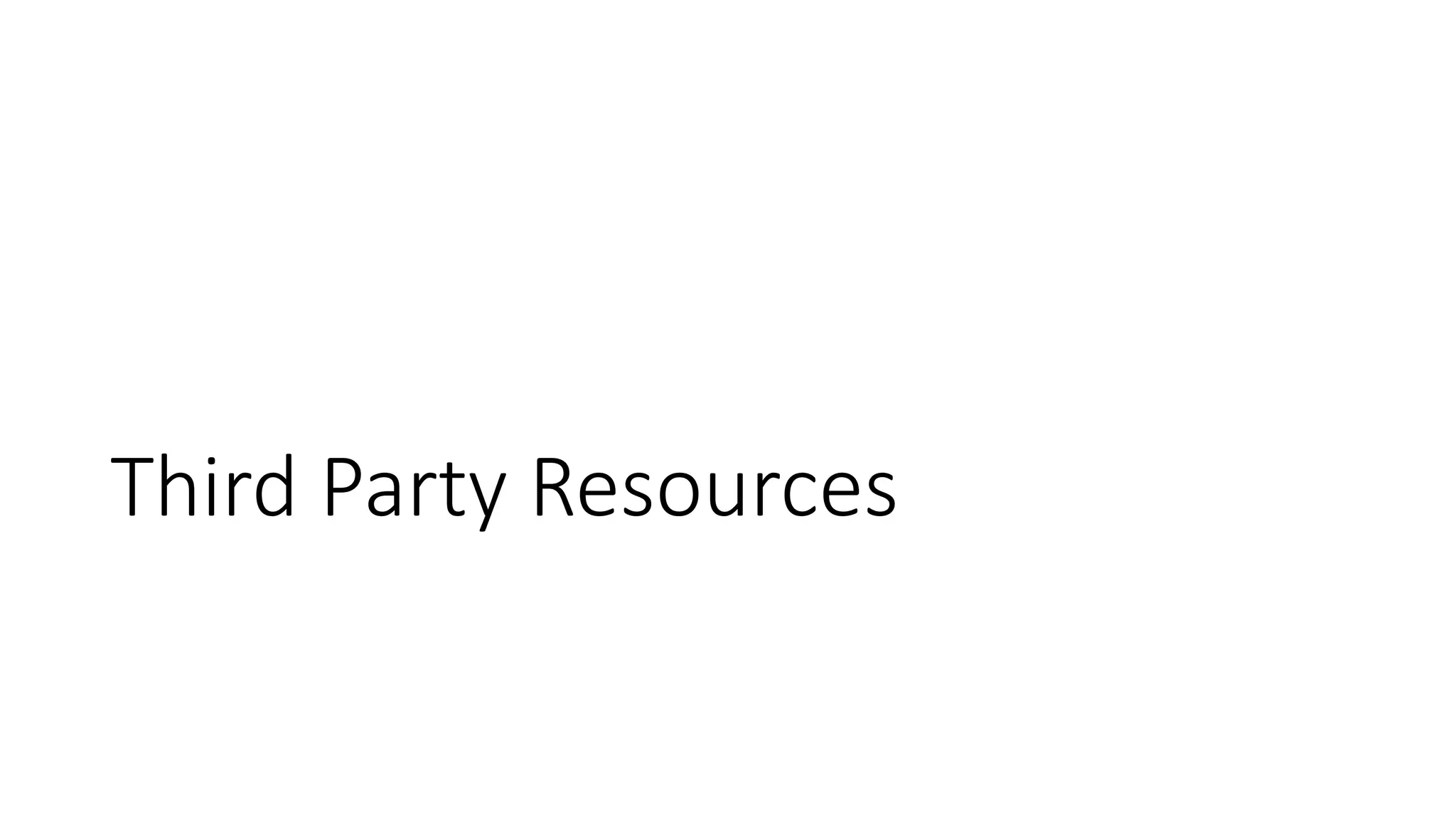
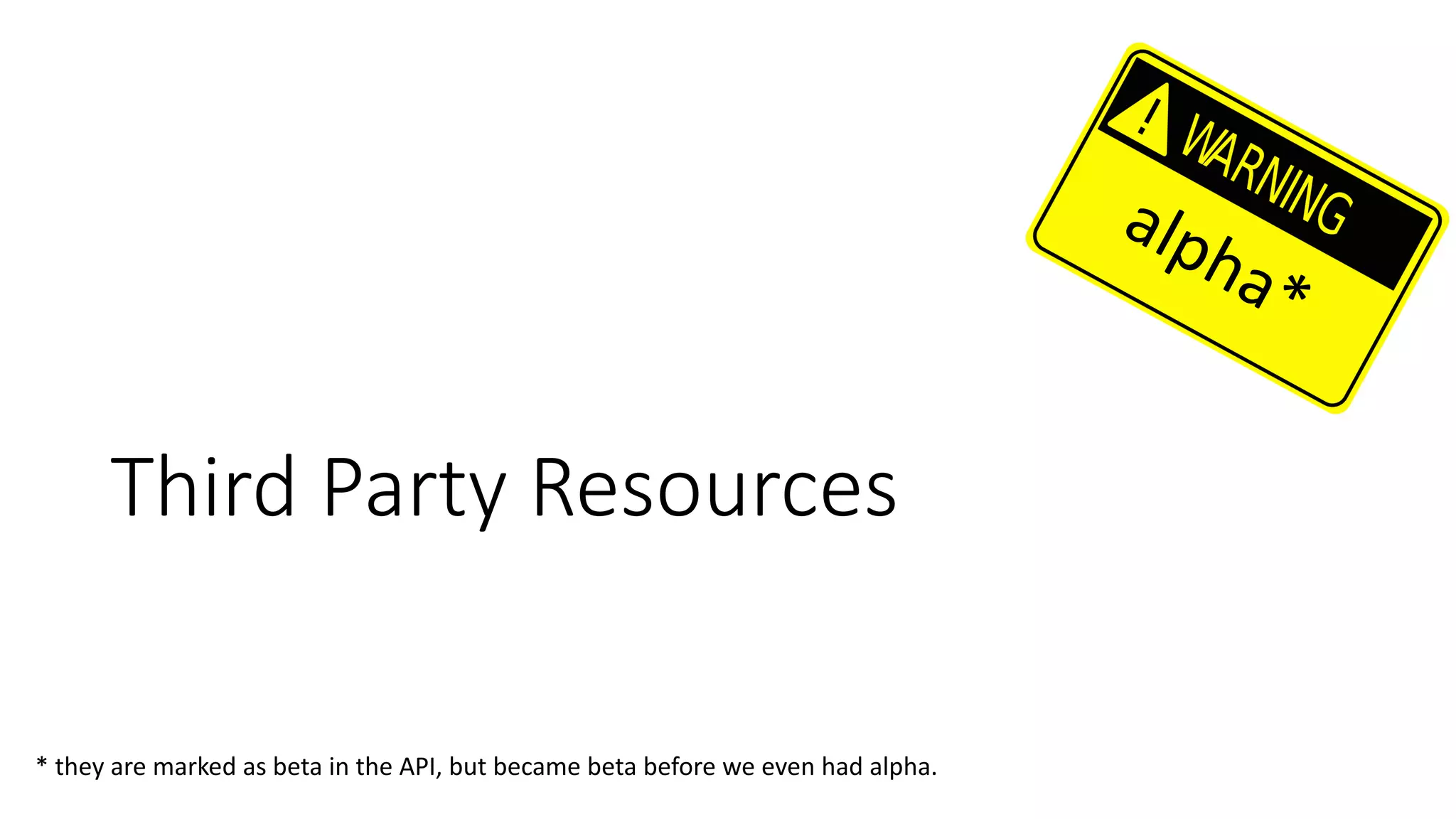
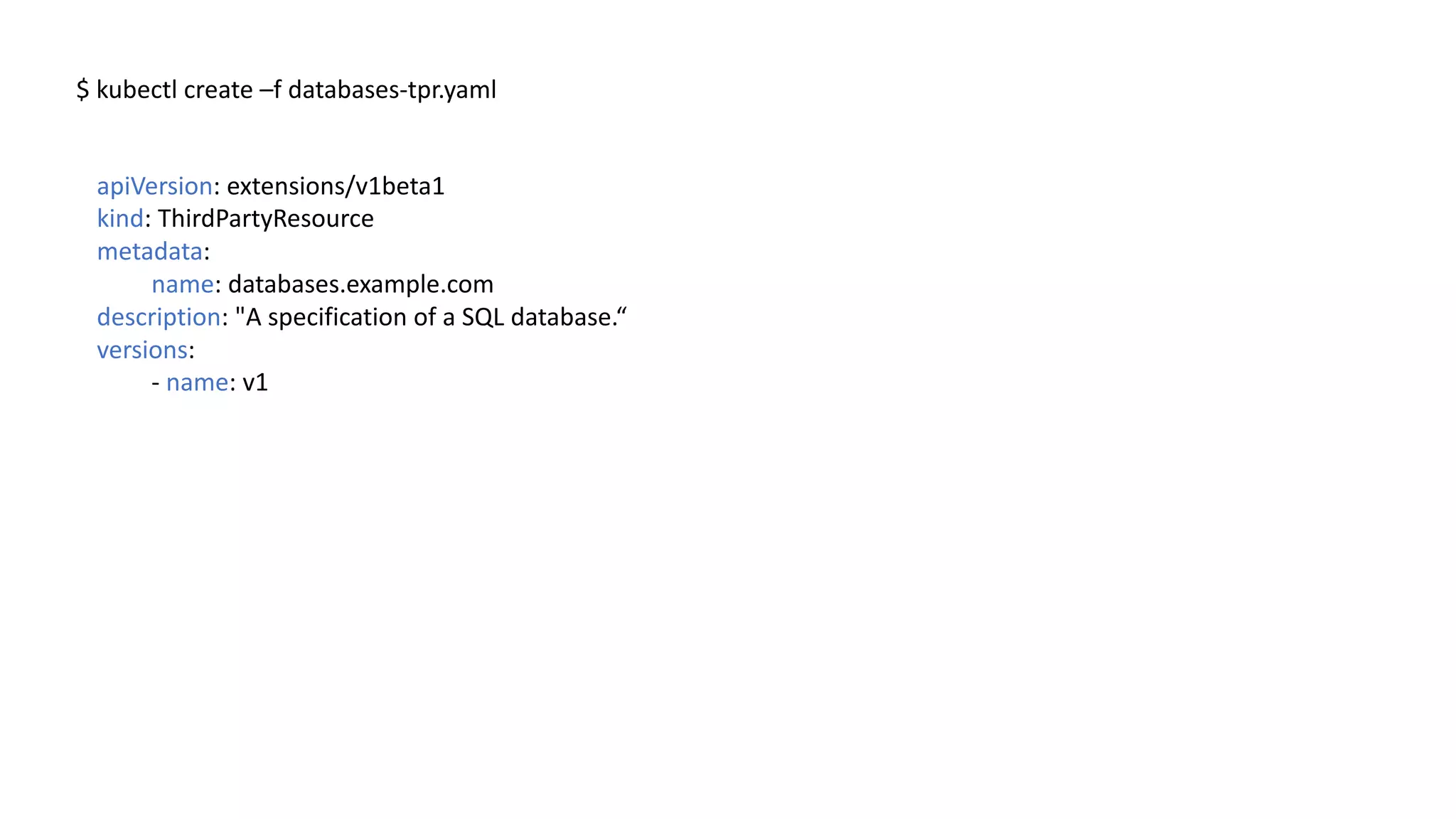
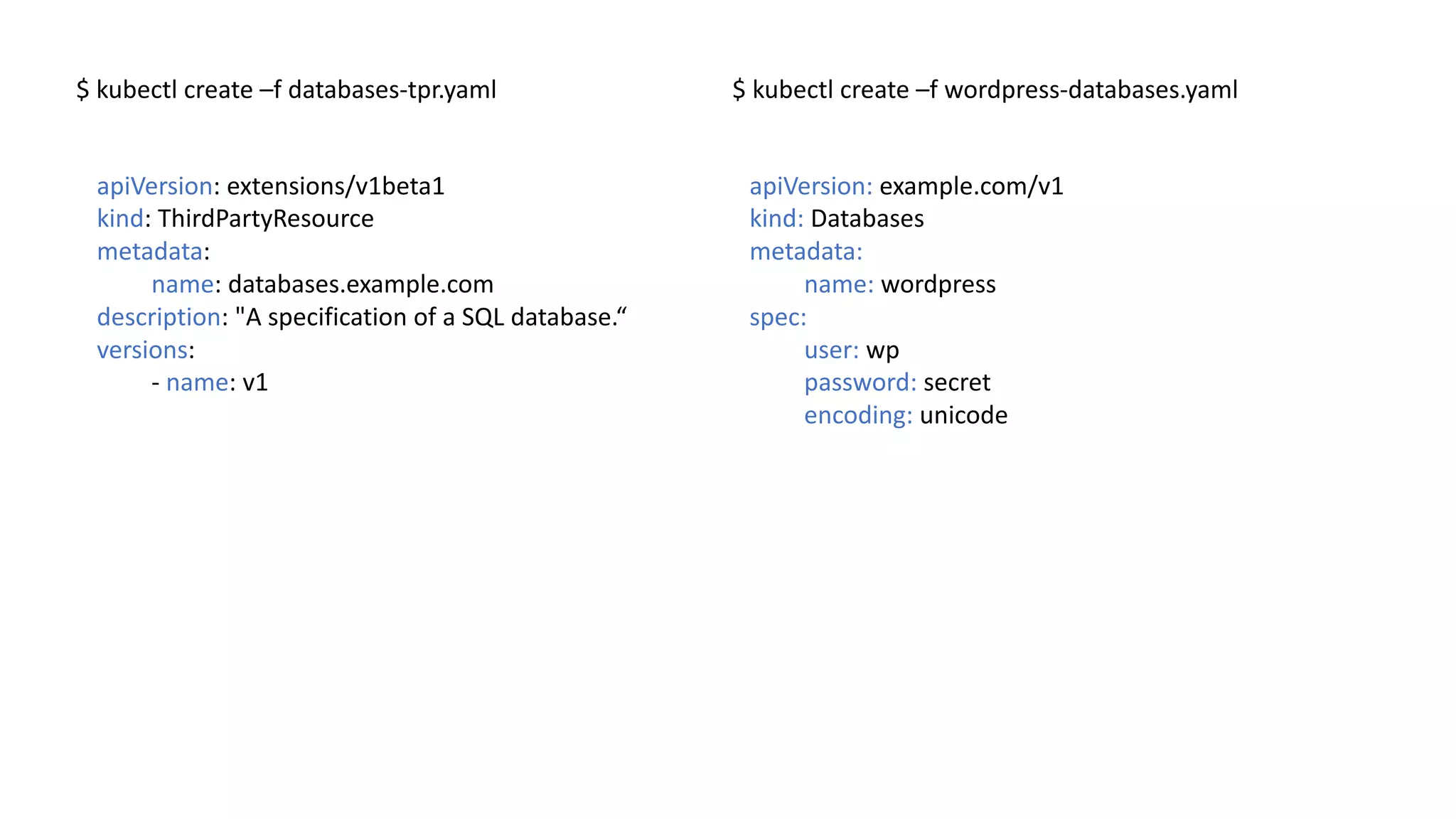
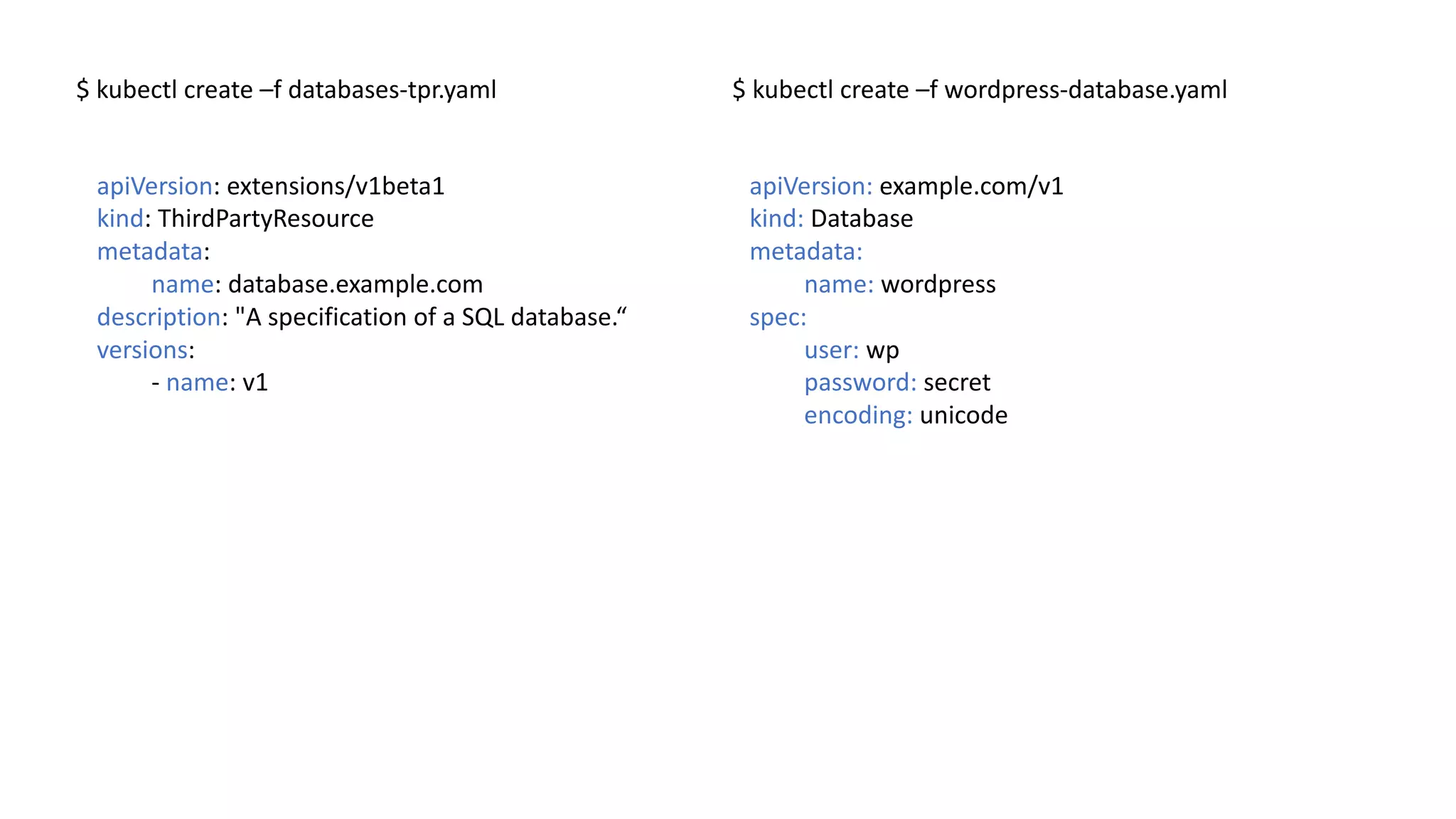
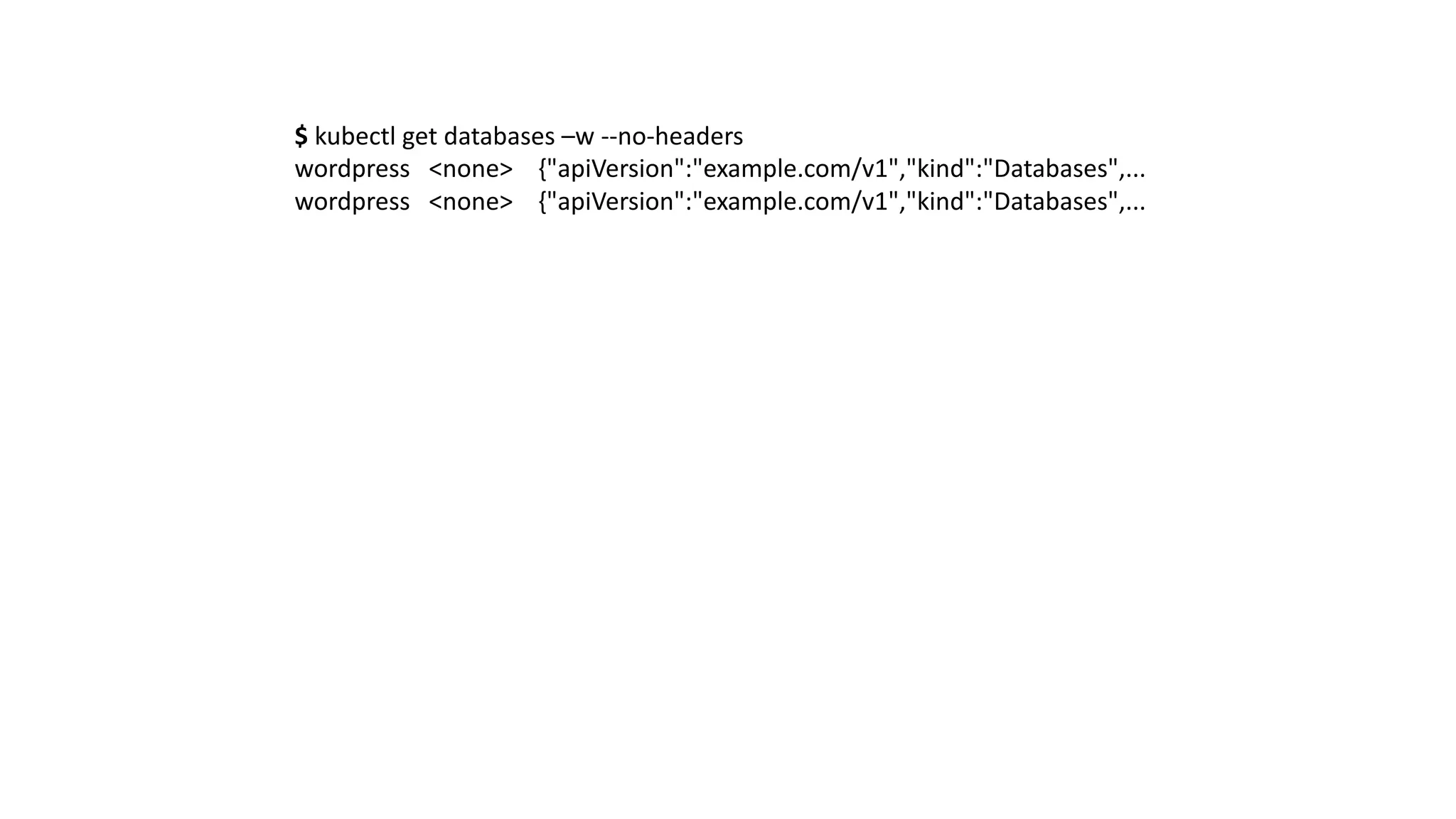

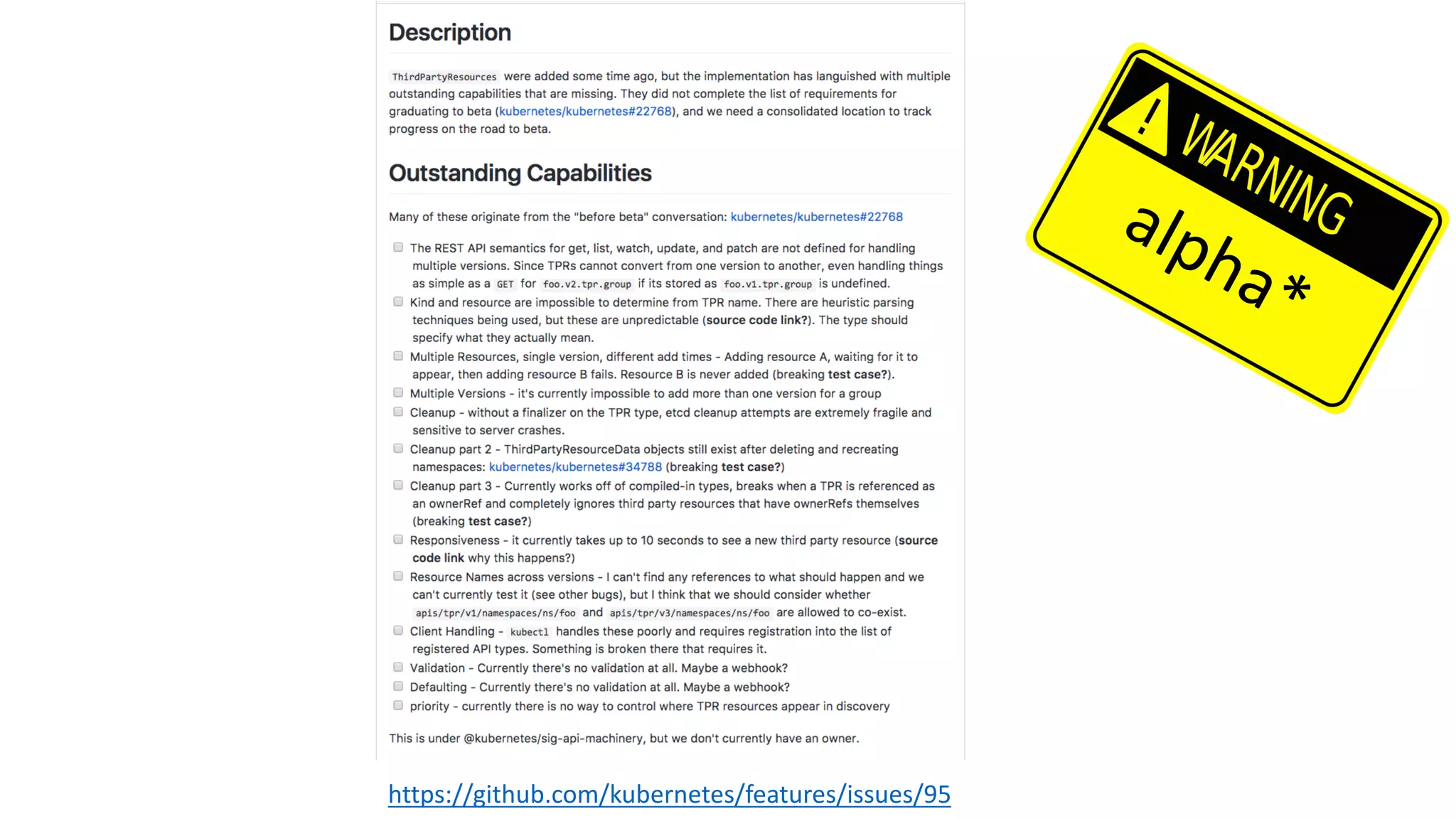
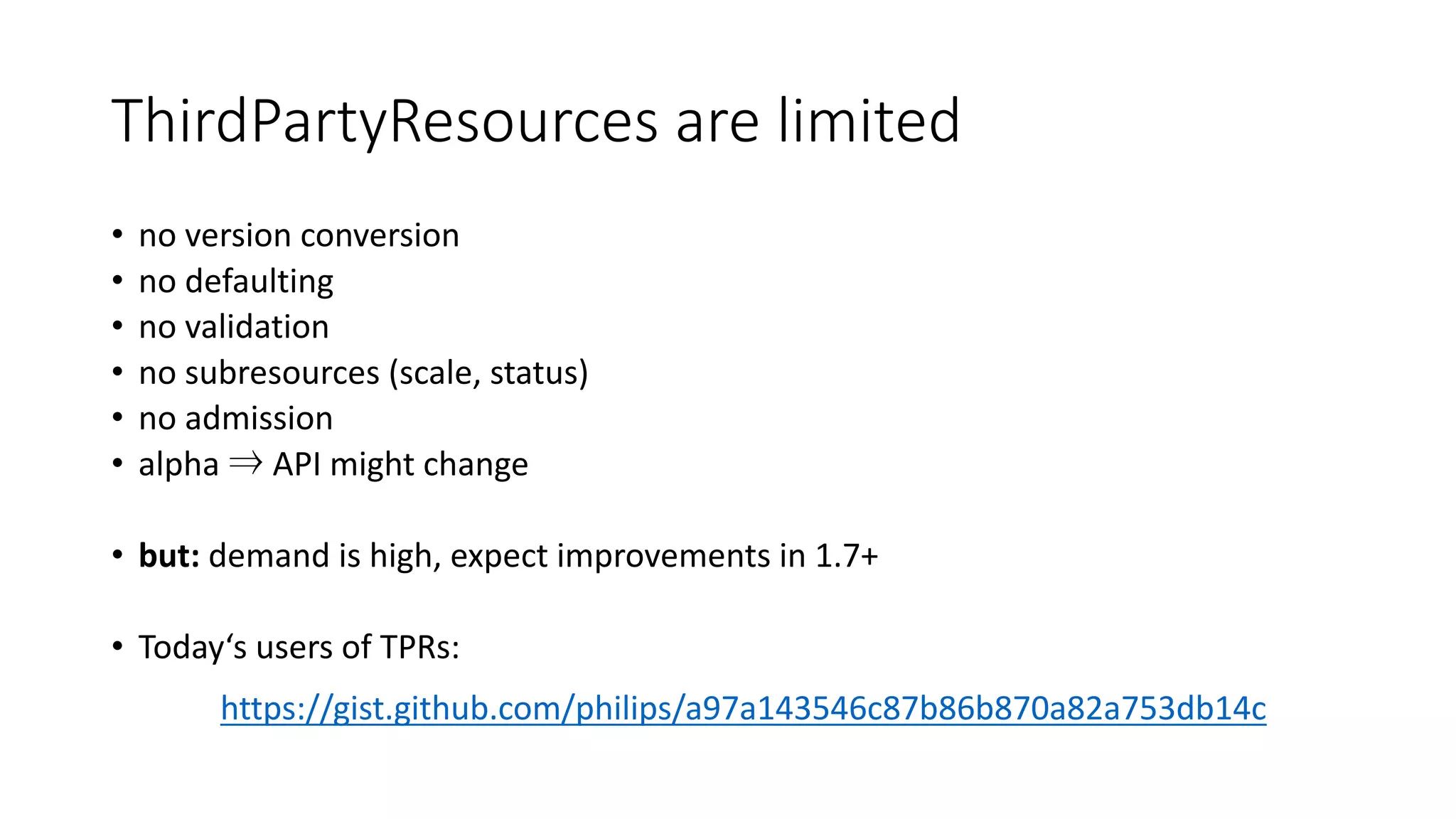

![$ while true; do
http GET http://127.0.0.1:8080/api/v1/namespaces/default |
jq ".metadata.annotations["meetup"] = "$(date)"" |
http --check-status PUT http://127.0.0.1:8080/api/v1/namespaces/default || break
done
⟲](https://image.slidesharecdn.com/meetup-extendandbuildonkubernetes-170311003200/75/Extend-and-build-on-Kubernetes-27-2048.jpg)
